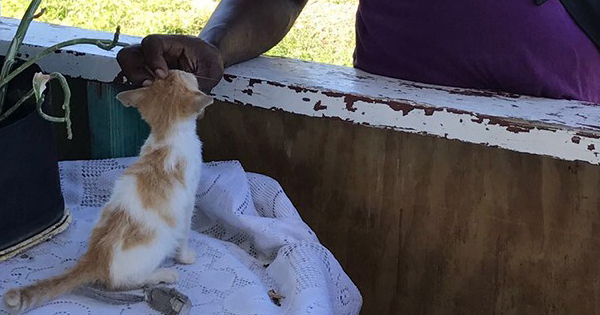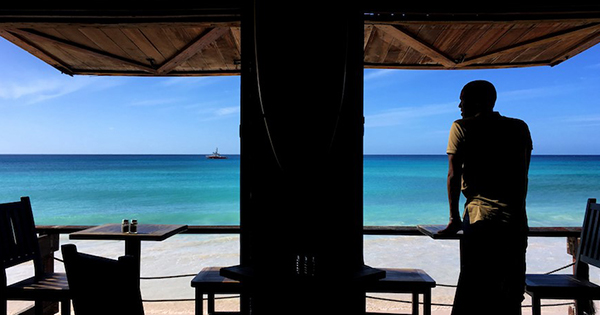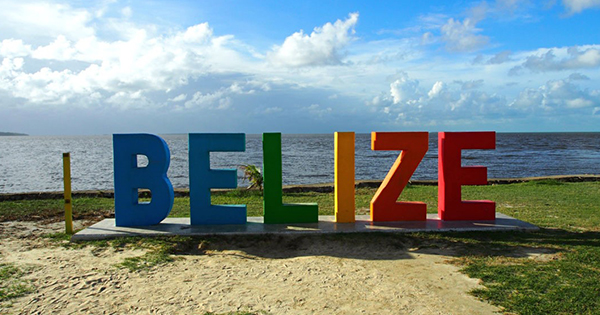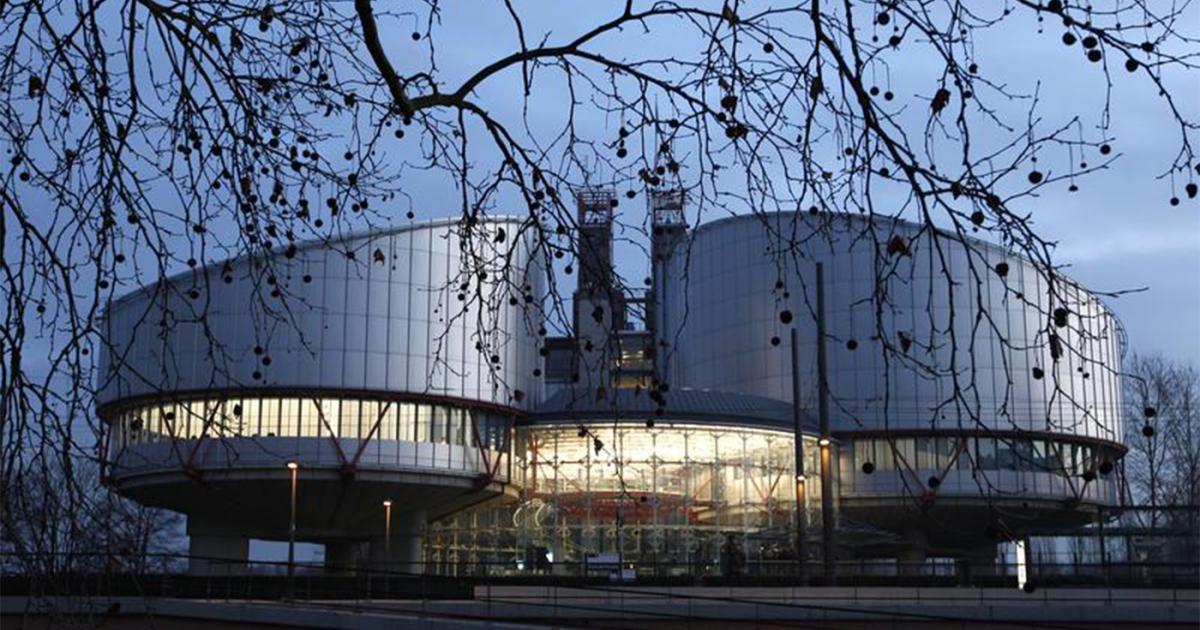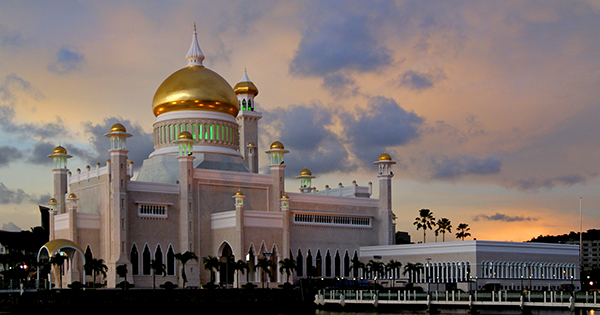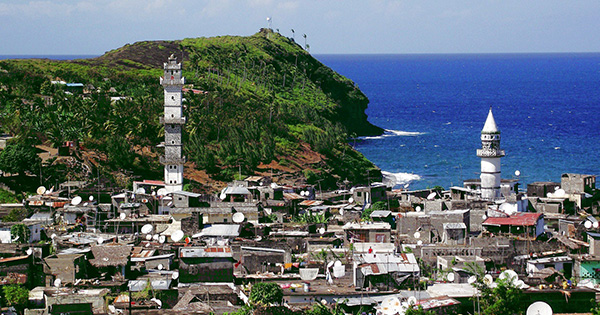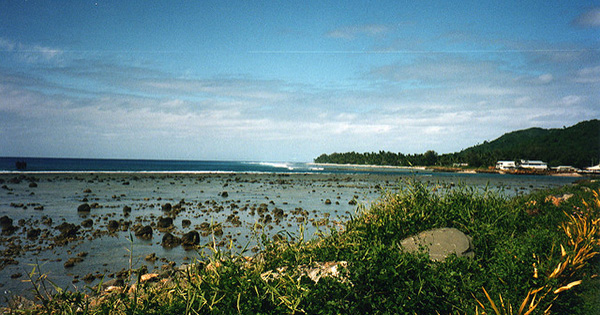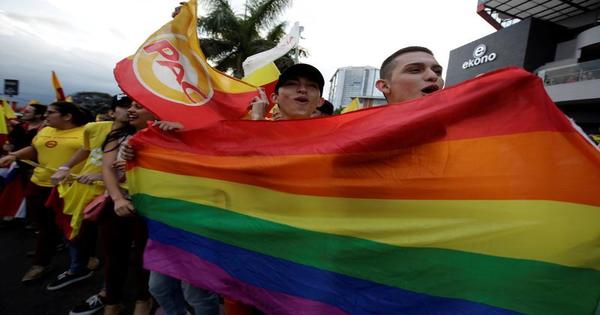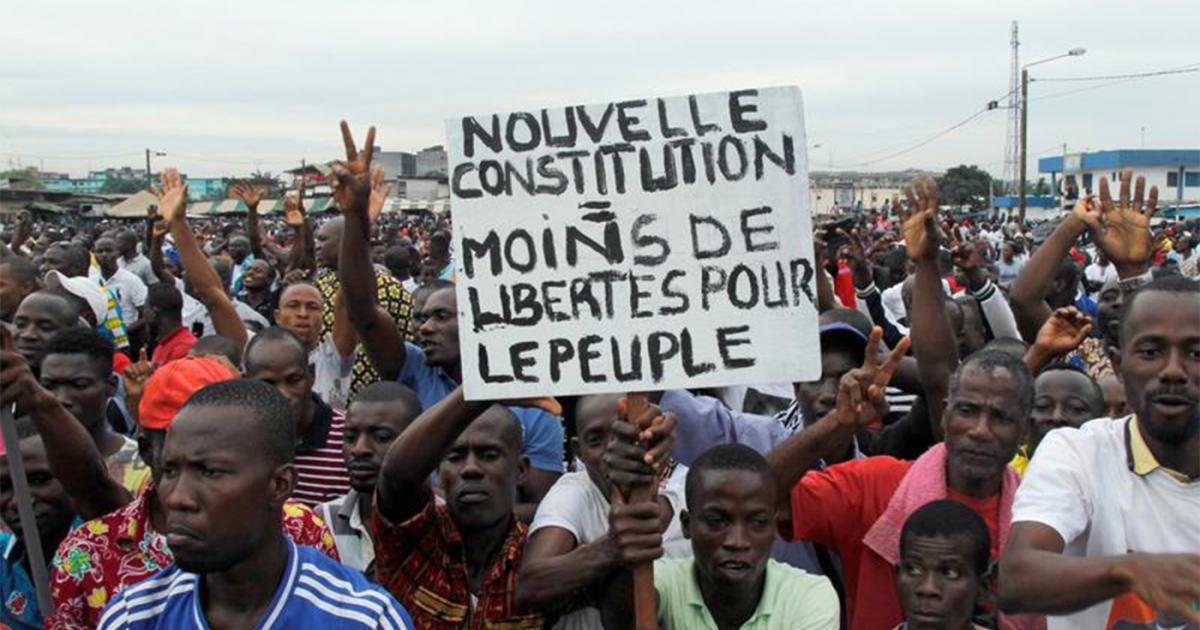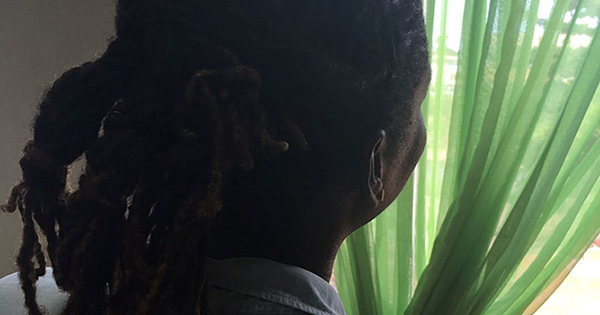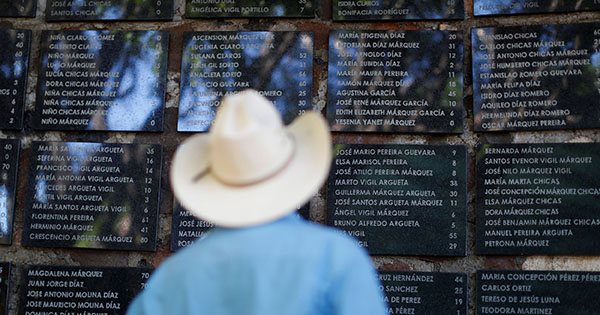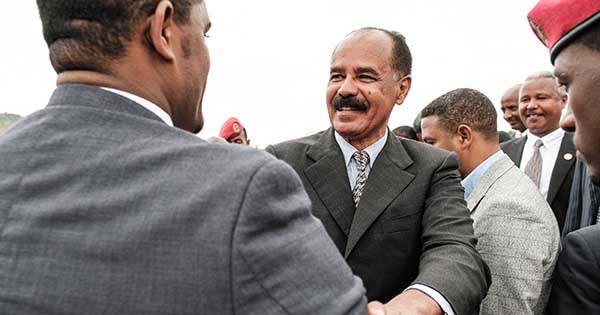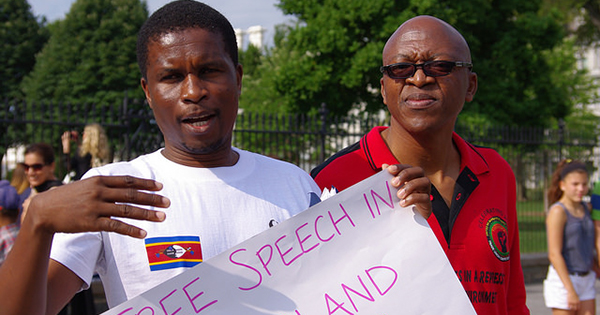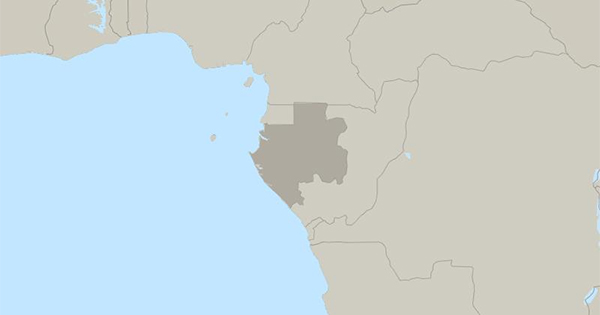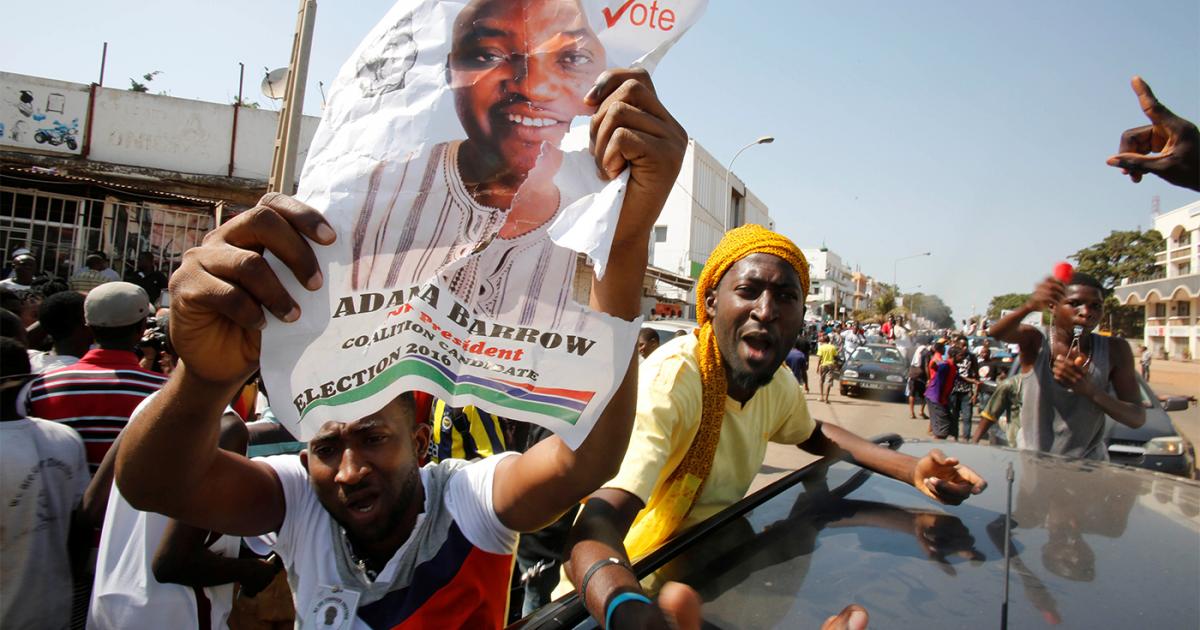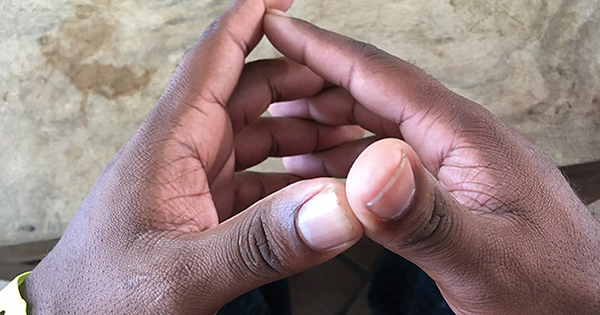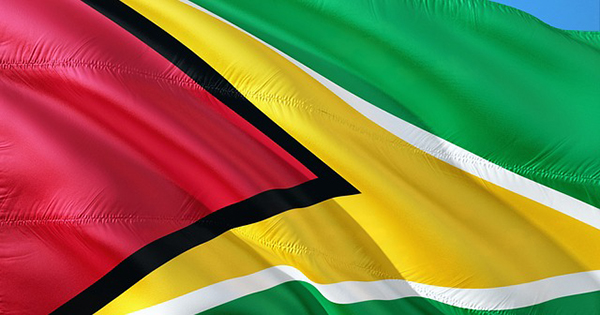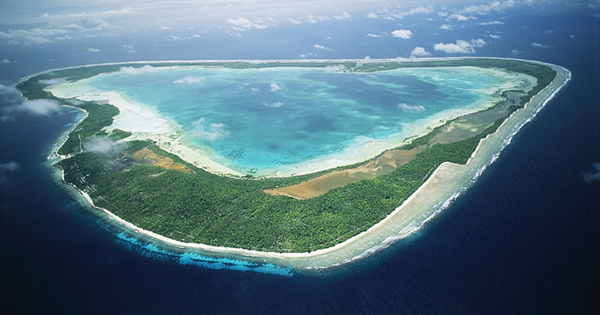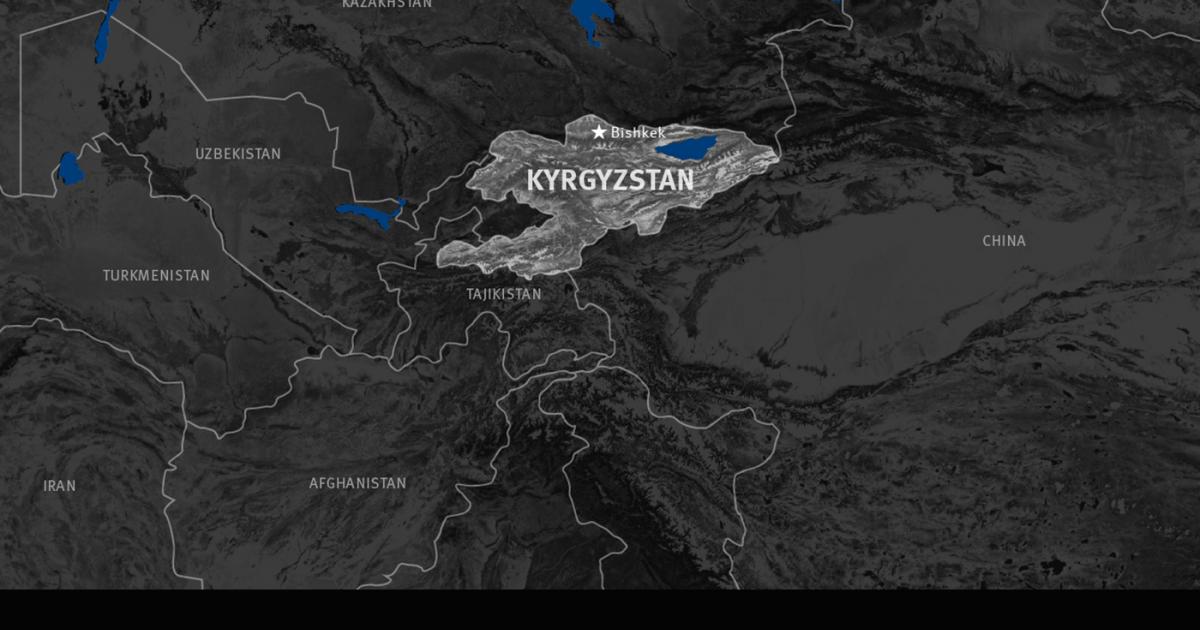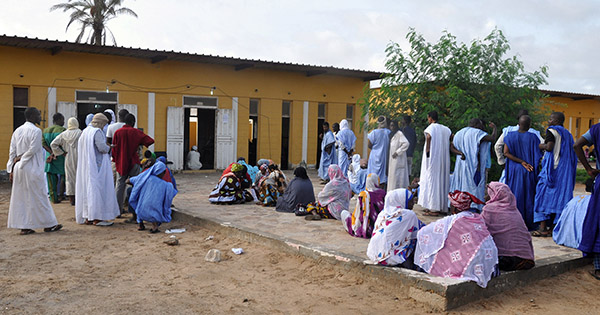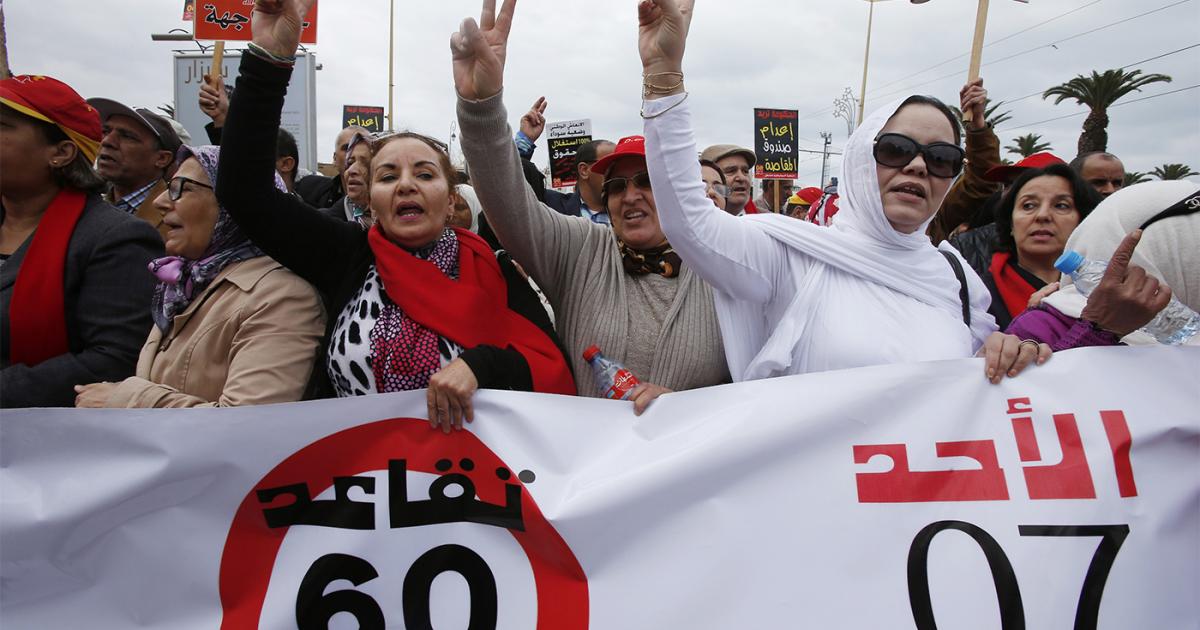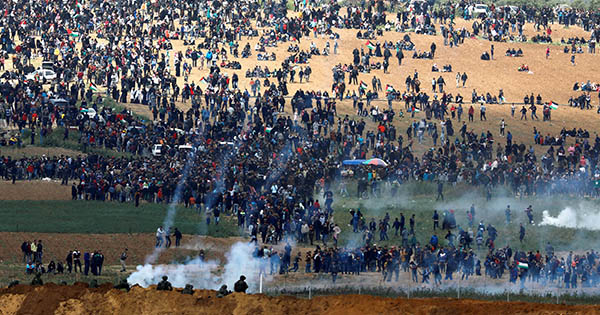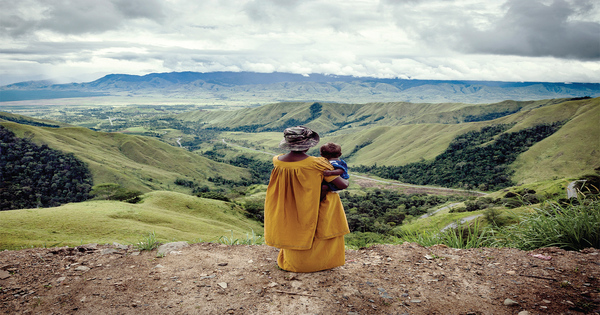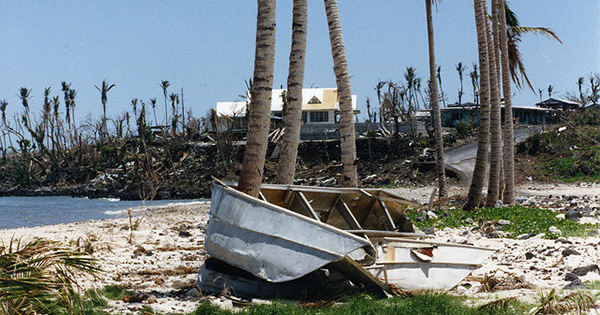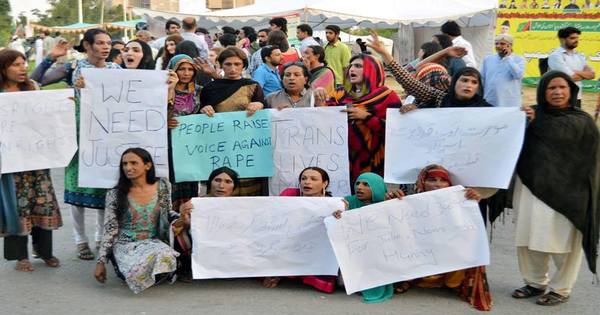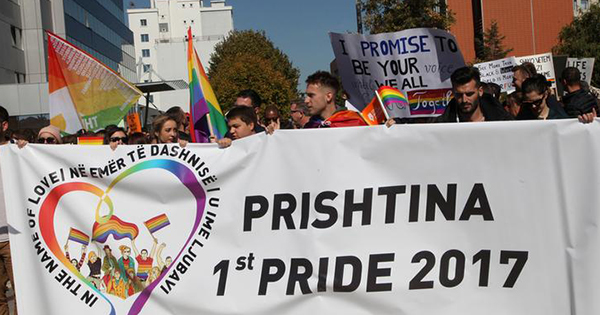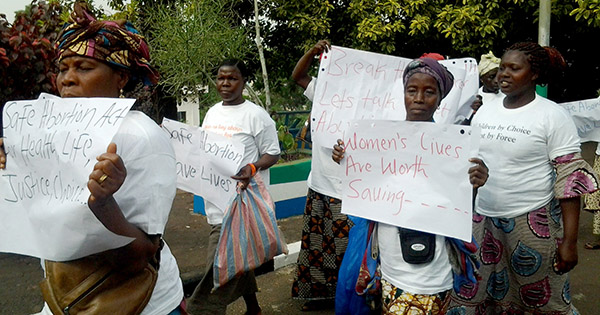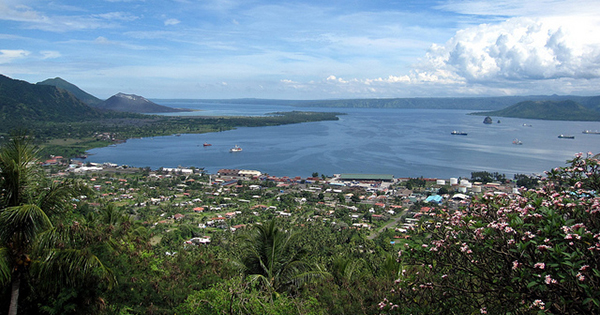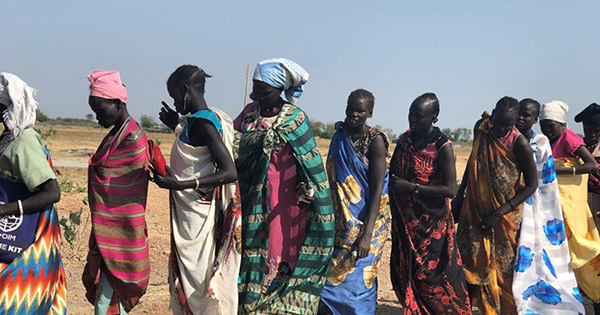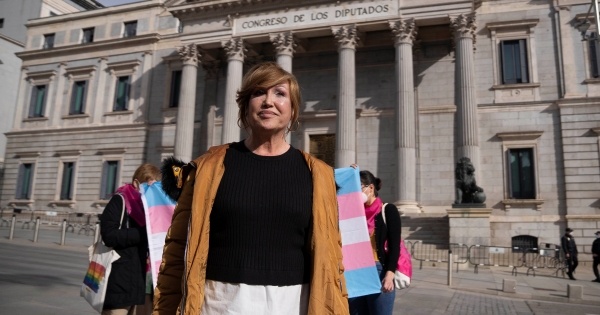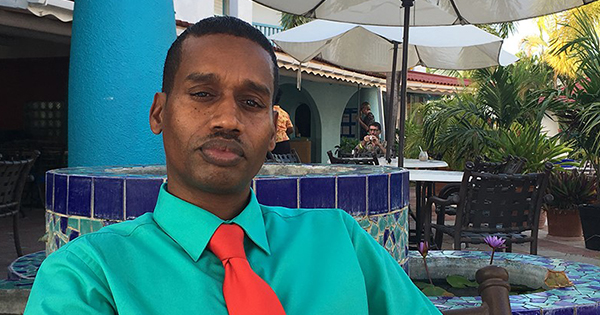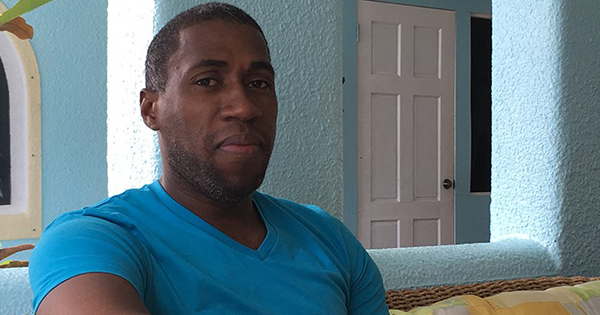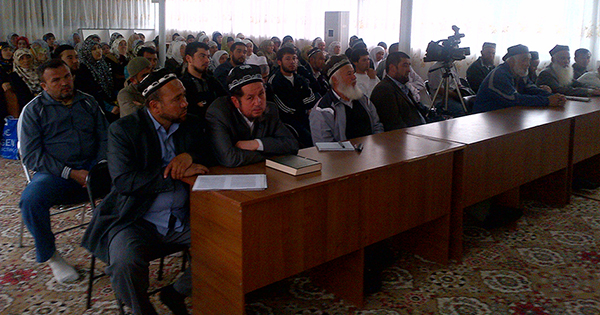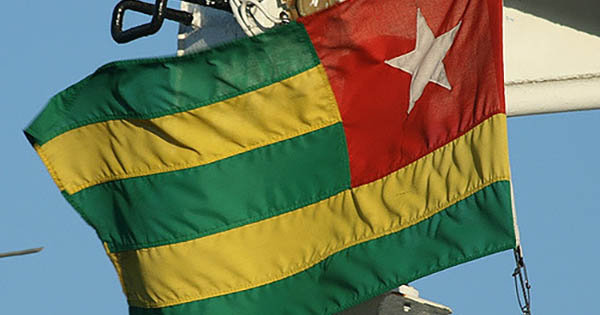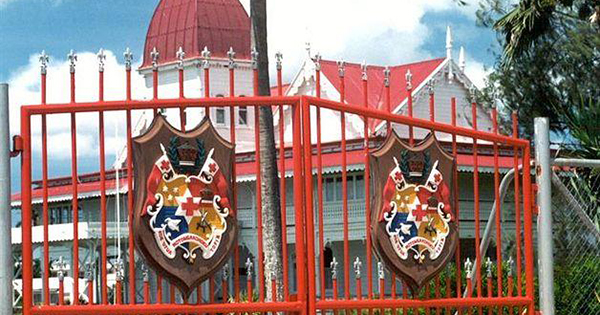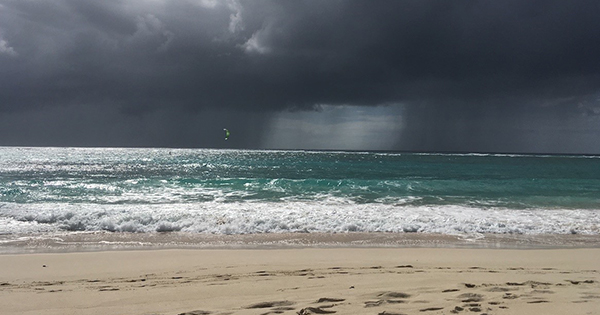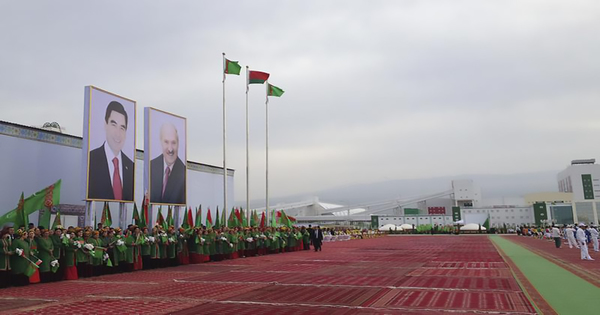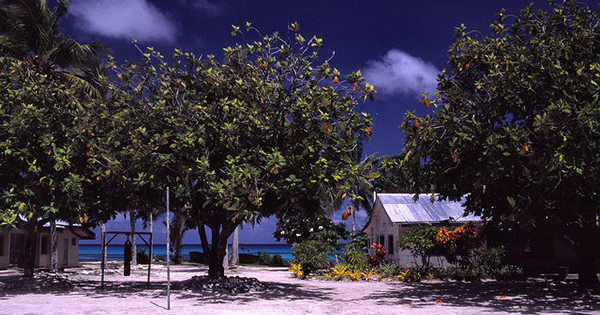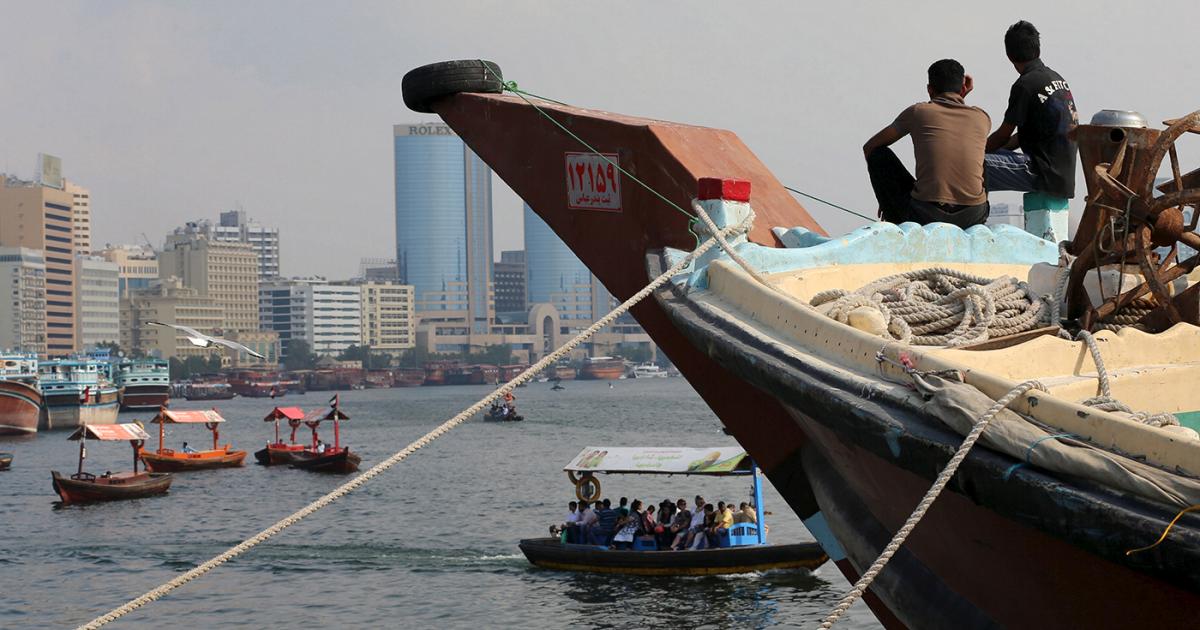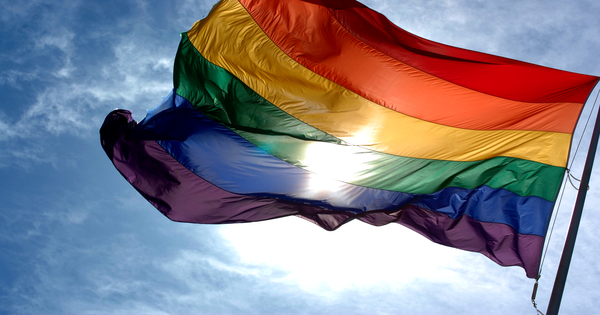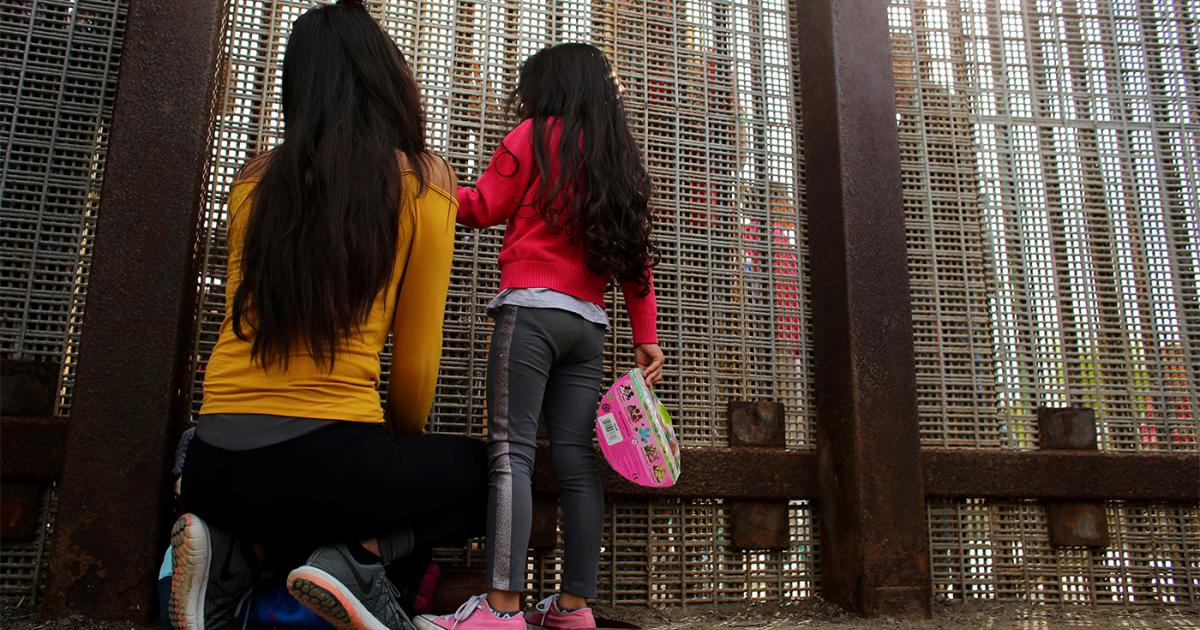In Afghanistan, LGBT people and others who do not conform to rigid gender norms have faced an increasingly desperate situation and grave threats to their safety and lives since the Taliban took full control of the country on August 15, 2021. Taliban members threatened or attacked LGBT people because of their sexual orientation or gender identity. More »
×Afghanistan
In Afghanistan, LGBT people and others who do not conform to rigid gender norms have faced an increasingly desperate situation and grave threats to their safety and lives since the Taliban took full control of the country on August 15, 2021. Taliban members threatened or attacked LGBT people because of their sexual orientation or gender identity. LGBT people also reported abuse from family members, neighbors, and romantic partners who now support the Taliban or believed they had to act against LGBT people close to them to ensure their own safety. Some fled their homes from attacks by Taliban members or supporters pursuing them. Others watched lives they had carefully built over the years disappear overnight and found themselves at risk of being targeted at any time because of their sexual orientation or gender identity.
Afghanistan’s new penal code of February 2018 explicitly criminalizes consensual same-sex relations. The penal code punishes musaheqeh (sexual relations between women) with up to one year in prison. It punishes sodomy, defined as “penetration of a male sexual organ into a female or a male anus,” with up to two years in prison.
Same-sex relations are punishable under article 338 of the penal code by up to two years in prison. Restrictions on freedom of association also pose obstacles to the work of LGBT groups. More »
×Algeria
Same-sex relations are punishable under article 338 of the penal code by up to two years in prison. Restrictions on freedom of association also pose obstacles to the work of LGBT groups.
An Algerian court on September 3, 2020 sentenced 2 men to prison terms and 42 others to suspended terms after mass arrests at what the police alleged was a “gay wedding.” The court convicted the 44 of “same-sex relations,” “public indecency,” and “subjecting others to harm by breaking Covid-19-related quarantine measures.” Two men were sentenced to three years in prison and a fine, and the others to a one-year suspended sentence.
In a positive step, Angola’s new penal code, which came into force on February 10, 2021, no longer criminalizes consensual same-sex conduct. Parliament had passed the new legislation in January 2019 to replace the obsolete penal code of 1886, but the president did not sign it into law until November 2020. More »
×Angola
In a positive step, Angola’s new penal code, which came into force on February 10, 2021, no longer criminalizes consensual same-sex conduct. Parliament had passed the new legislation in January 2019 to replace the obsolete penal code of 1886, but the president did not sign it into law until November 2020.
The new penal code removed the contentious provisions that punished people who “habitually indulge in the practice of vices against nature,” which targeted LGBT communities, and limited their access to employment, health care, and education. The new law prohibits violence and discrimination on the basis of sexual orientation, among other things, including for employment, with a punishment of up to two years’ imprisonment.
Antigua and Barbuda’s 1995 Sexual Offences Act criminalizes the act of “buggery” between consenting adults with a sentence of 15 years in prison, and acts of “serious indecency” with up to 5 years. Human Rights Watch has documented anti-LGBT violence and threats faced by gay men and trans women in Antigua and Barbuda. More »
×Antigua and Barbuda
Antigua and Barbuda’s 1995 Sexual Offences Act criminalizes the act of “buggery” between consenting adults with a sentence of 15 years in prison, and acts of “serious indecency” with up to 5 years. Human Rights Watch has documented anti-LGBT violence and threats faced by gay men and trans women in Antigua and Barbuda.
The Royal Police Force of Antigua and Barbuda has undergone LGBTI sensitization training to better protect the rights of LGBTI people, facilitated by Caribbean activists.
In 2016, following its UN Universal Periodic Review, the minister of social transformation announced that she was willing to introduce to Cabinet a recommendation to repeal the buggery laws, but as of 2021, they remain in place in Antigua and Barbuda.
In November 2019, the Eastern Caribbean Alliance for Diversity and Equality announced it planned to launch a legal challenge against the criminalization of private, consensual same-sex sexual activity.
In 2010, Argentina became the first Latin American country to legalize same-sex marriage at a national level. The Civil Marriage Law allows same-sex couples to enter civil marriages and affords them the same legal marital protections as different-sex couples, including adoption rights and pension benefits. Since 2010 more than 20,000 same-sex couples have married nationwide. More »
×Argentina
In 2010, Argentina became the first Latin American country to legalize same-sex marriage at a national level. The Civil Marriage Law allows same-sex couples to enter civil marriages and affords them the same legal marital protections as different-sex couples, including adoption rights and pension benefits. Since 2010 more than 20,000 same-sex couples have married nationwide.
In 2012, Argentina passed a Gender Identity Law, respecting self-identification. It allows anyone to change the gender and name in their identity card and birth certificate through a simple administrative procedure.
In September 2020, President Alberto Fernández issued a decree establishing that at least 1 percent of employees in the federal government should be transgender people.
In July 2021, President Fernández allowed for a third gender option, “X” (neither male or female), on passports and identity cards available to citizens and non-national residents. Argentina is the first country in Latin America to establish such a category.
LGBT people in Armenia face harassment, discrimination, and violence. During the 2021 June pre-election period, politicians pandered to homophobia to advance their campaigns by targeting LGBT people as a threat to the family, to national identity, and even national security. Some accused civil society organizations of destroying national values and spreading LGBT “propaganda.” Public debate around the ratification of the Council of Europe Convention on Preventing and Combating Violence Against Women and Domestic Violence (Istanbul Convention) descended into tirades against LGBT people by some public officials, who similarly falsely suggested that the convention aims to promote “LGBT propaganda” and legitimize same-sex marriage. The criminal code does not recognize animus due to sexual orientation or gender identity as aggravating criminal circumstances in hate crimes. More »
×Armenia
LGBT people in Armenia face harassment, discrimination, and violence. During the 2021 June pre-election period, politicians pandered to homophobia to advance their campaigns by targeting LGBT people as a threat to the family, to national identity, and even national security. Some accused civil society organizations of destroying national values and spreading LGBT “propaganda.” Public debate around the ratification of the Council of Europe Convention on Preventing and Combating Violence Against Women and Domestic Violence (Istanbul Convention) descended into tirades against LGBT people by some public officials, who similarly falsely suggested that the convention aims to promote “LGBT propaganda” and legitimize same-sex marriage. The criminal code does not recognize animus due to sexual orientation or gender identity as aggravating criminal circumstances in hate crimes.
Fear of discrimination, humiliation and public disclosure of their sexual orientation, fear of retaliation and lack of trust in the conduct of effective investigations prevents many LGBT people from reporting crimes. In 2021, victims in only 10 out of 35 cases documented by PINK, an Armenian LGBTQ rights organization, filed formal complaints to law-enforcement bodies. The authorities pursued charges against a perpetrator only in one case. And while the court convicted the perpetrator, it did not consider the fact the crime was committed based on the victim’s sexual orientation or gender identity as an aggravating circumstance and issued a lenient sanction of a fine.
Also in 2021, a civil court issued a groundbreaking decision, finding discrimination based on sexual orientation and gender identity when a sports club refused to provide services to a gay man and two trans people.
In August 2020, the Court of Appeal ruled there had not been a proper investigation into a 2018 violent attack against a group of LGBT activists, which left at least six activists injured. The court ordered the attack be reinvestigated.
Openly gay men fear for their physical security in the military, and some seek exemption from serving in the army. An exemption, however, requires a medical conclusion finding them “psychologically or mentally unfit” to serve. A finding of “psychological or mental disorder” could be an obstacle to employment or obtaining a driver’s license. In January 2019, Artak (Adam) Arakelyan, 19, a queer activist, was subjected to abuse and discrimination at a military draft board, where officers variously used homophobic slurs to describe him, mocked him. Various law enforcement agencies rejected Arakelyan’s request for an investigation into the incident.
Three Australian states passed bills in 2020 and 2021 prohibiting conversion therapy aimed at changing a person’s sexual orientation or gender identity. In August, Queensland issued a law prohibiting health service providers from performing conversion therapy, defined as “a practice that attempts to change or suppress a person’s sexual orientation or gender identity,” on any person. More »
×Australia
Three Australian states passed bills in 2020 and 2021 prohibiting conversion therapy aimed at changing a person’s sexual orientation or gender identity. In August, Queensland issued a law prohibiting health service providers from performing conversion therapy, defined as “a practice that attempts to change or suppress a person’s sexual orientation or gender identity,” on any person. The bill carries a sentence of up to 18 months in prison. In September, the Australian Capital Territory (ACT) passed a law providing 12 months’ imprisonment and a fine of 150 penalty units (currently valued at AU$33,000 or US$25,000) for any person who conducts a “sexuality or gender identity conversion practice,” defined as “a treatment or other practice the purpose, or purported purpose, of which is to change a person’s sexuality or gender identity,” on a child. In February 2021, Victoria passed a law that provides for up to six years’ in prison for any person who engages in a “change or suppression practice” towards another person on the basis of sexual orientation or gender identity, with or without that person’s consent, if it causes physical injury or mental harm, and 10 years if the physical or mental harm is substantial and protracted.
Austria conducted its first same-sex marriages on January 1, 2019. More »
×Austria
Austria conducted its first same-sex marriages on January 1, 2019. Marriage equality emerged in Austria following a December 2017 Constitutional Court ruling that the government and Parliament had until January 1, 2019, to introduce legislation allowing same-sex couples to marry. The Equal Treatment Act of 1979, which was amended in 2004, prohibits discrimination on the grounds of sexual orientation.
In April 2020, police detained around 14 gay men and transgender women, claiming they engaged in illegal sex work. More »
×Azerbaijan
In April 2020, police detained around 14 gay men and transgender women, claiming they engaged in illegal sex work. According to Nefes LGBT Azerbaijan Alliance, an independent group, in some cases police detained people after luring them for dates through mobile apps. Police forced some of them to undergo unlawful, forced testing for HIV and other sexually transmitted diseases. Courts fined two for “hooliganism” and handed jail sentences of up to 15 days to another three for resisting police, then fined and released them upon appeal. No confirmed information is available regarding sanctions against the other nine. In May 2020, a leaked video of a zoom meeting among political parties revealed politicians making derogatory comments about LGBT people. There were several violent attacks against transgender people in the capital Baku in 2020. Attacks on LGBT people, in particular transgender sex workers, are often carried out with impunity.
Although no law explicitly criminalizes same-sex relations, authorities have used vague penal code provisions against “indecency” and “immorality” to target sexual and gender minorities. There is no law that prohibits discrimination on the grounds of gender identity or sexual orientation. More »
×Bahrain
Although no law explicitly criminalizes same-sex relations, authorities have used vague penal code provisions against “indecency” and “immorality” to target sexual and gender minorities. There is no law that prohibits discrimination on the grounds of gender identity or sexual orientation.
In December 2018, Bahrain amended its labor law to ban discrimination based on sex, origin, language or creed, and sexual harassment in the workplace, but the law does not refer to sexual orientation or gender identity.
Section 377 of the Bangladeshi penal code punishes “carnal intercourse against the order of nature” by up to life imprisonment. The government has taken some positive steps in recent years, such as declaring legal recognition of a third gender category for hijras, and community visibility has increased. In November 2020, a religious charity in Dhaka opened an Islamic school for hijras, which activists heralded as “a beacon of hope” for the community. More »
×Bangladesh
Section 377 of the Bangladeshi penal code punishes “carnal intercourse against the order of nature” by up to life imprisonment. The government has taken some positive steps in recent years, such as declaring legal recognition of a third gender category for hijras, and community visibility has increased. In November 2020, a religious charity in Dhaka opened an Islamic school for hijras, which activists heralded as “a beacon of hope” for the community. A small town elected a transgender person mayor in November 2021. However, implementation of the legal recognition rights has been fraught as mandatory medical examinations have resulted in abuse. Sexual and gender minorities continue to fear for their safety amid a climate of impunity for attacks on minorities by religious extremists.
Chapter 154 of the 1992 Sexual Offences Act punishes any person who commits “buggery” with life imprisonment, and any person who commits an “act of serious indecency” with 10 years in prison. In 2016, then-Prime Minister Freundel Stuart of Barbados claimed the Sexual Offences Act only applies in cases of non-consensual sex, but the buggery laws make no distinction between consensual and non-consensual sex, and their application is not conditioned on lack of consent. More »
×Barbados
Chapter 154 of the 1992 Sexual Offences Act punishes any person who commits “buggery” with life imprisonment, and any person who commits an “act of serious indecency” with 10 years in prison. In 2016, then-Prime Minister Freundel Stuart of Barbados claimed the Sexual Offences Act only applies in cases of non-consensual sex, but the buggery laws make no distinction between consensual and non-consensual sex, and their application is not conditioned on lack of consent.
Barbados rejected Universal Periodic Review recommendations in 2018 to decriminalize same-sex acts. In 2018, three LGBT activists in Barbados filed a challenge to the buggery laws with the Inter-American Commission on Human Rights.
In July 2020, Prime Minister Mia Mottley denounced discrimination on the basis of gender and sexual orientation in response to a version of the Remote Employment Act, 2020–a bill enabling foreigners to live and work in Barbados for one year–that discriminated against same-sex couples.
In August 2020, Barbados passed the Employment (Prevention of Discrimination) Act providing protections in the workplace, including on the basis of sex, sexual orientation, and other characteristics.
In November 2021, a week before becoming a republic, Barbados’ parliament passed a non-binding Charter that lays out the rights and responsibilities of citizens. Article 1 of the Charter states, “All Barbadians are born free and are equal in human dignity and rights regardless of […] sex, gender or sexual orientation.”
Belarus’ 2017 Law on the Protection of Children from Information Harmful to their Health and Development may be used to restrict dissemination of neutral or positive information about LGBT people as “discrediting the institution of the family.” In September 2020, a leaked document signed by health ministry officials suggested the government was considering imposing civil and criminal penalties for disseminating “information that discredits the institution of family and marriage.” More »
×Belarus
Belarus’ 2017 Law on the Protection of Children from Information Harmful to their Health and Development may be used to restrict dissemination of neutral or positive information about LGBT people as “discrediting the institution of the family.” In September 2020, a leaked document signed by health ministry officials suggested the government was considering imposing civil and criminal penalties for disseminating “information that discredits the institution of family and marriage.”
In 2019, a court in Minsk recognized an attack on a filmmaker as a hate-motivated crime, sentencing the perpetrator to one-and-a-half years of restriction of liberty, a sentence similar to house-arrest. Recognition of the hate motive in the attack on the filmmaker, who had been working on an LGBT-themed documentary, signals progress for accountability and justice for LGBT people in Belarus.
In 2016 the Belize Supreme Court became the first Commonwealth Caribbean Court to hold that laws that criminalize same-sex intimacy were unconstitutional, affirming the rights of LGBT people in Belize to dignity, privacy, and equality before the law. More »
×Belize
In 2016 the Belize Supreme Court became the first Commonwealth Caribbean Court to hold that laws that criminalize same-sex intimacy were unconstitutional, affirming the rights of LGBT people in Belize to dignity, privacy, and equality before the law. The court struck down Section 53 of the criminal code, which outlawed “carnal intercourse against the order of nature,” and reduced the scope of Section 53 by excluding sexual activity taking place in private between consenting adults. The Court of Appeal reaffirmed the ruling in December 2019, stating unequivocally that the constitutional prohibition on sex discrimination includes discrimination on the basis of sexual orientation.
A bill that would repeal parts of Bhutan's penal code that criminalize same-sex conduct was introduced in the upper house of Parliament in January 2019. The lower house of Parliament voted in June 2019 to repeal two sections of the country's 2004 criminal code, which made “unnatural sex” between consenting adults illegal. More »
×Bhutan
A bill that would repeal parts of Bhutan's penal code that criminalize same-sex conduct was introduced in the upper house of Parliament in January 2019. The lower house of Parliament voted in June 2019 to repeal two sections of the country's 2004 criminal code, which made “unnatural sex” between consenting adults illegal. But before being sent to royal approval, the bill first needs to pass the National Council, Parliament's upper chamber. While there have been no known prosecutions under the law, provisions like this one curtail the rights and freedoms of LGBT people, subjecting their intimate lives to unwarranted scrutiny.
In 2010, Bolivia passed a law that provides legal protection against discrimination on the basis of sexual orientation and gender identity. More »
×Bolivia
In 2010, Bolivia passed a law that provides legal protection against discrimination on the basis of sexual orientation and gender identity.
In 2016, the Plurinational Assembly passed a law that allows people to revise the gender listed on their identification documents without judicial approval or sex reassignment surgery, though it requires a psychological exam. In November 2017, the Constitutional Court ruled that revision of gender did not grant the right to marry a person of the same biological sex.
In December 2020, after a two-year legal battle, the La Paz civil registry complied with a court order and registered the first same-sex union in the country. In June 2021, however, it denied the same right to a lesbian couple, who then filed an administrative appeal. In January 2022, the national civil registry issued a resolution allowing the lesbian couple to register, though the La Paz civil registry has not implemented it as of April 2022 , despite requests from the couple. It has provided a host of different reasons, including Covid-19-related administrative delays.
The case of the first registered same-sex union is pending before the Constitutional Court, which is expected to determine whether all same-sex couples can join in “free unions.”
The second-ever Sarajevo Pride march scheduled to take place in August 2020, was canceled due to the Covid-19 pandemic. The Sarajevo Open Center (SOC), a lesbian, gay, bisexual, transgender, and intersex (LGBTI) and women’s rights group, informed Human Rights Watch that it observed an increase in online threats against activists around the time of the planned march. In the context of the Covid-19 lockdown, SOC documented several cases of parental violence toward LGBTI children. More »
×Bosnia and Herzegovina
The second-ever Sarajevo Pride march scheduled to take place in August 2020, was canceled due to the Covid-19 pandemic. The Sarajevo Open Center (SOC), a lesbian, gay, bisexual, transgender, and intersex (LGBTI) and women’s rights group, informed Human Rights Watch that it observed an increase in online threats against activists around the time of the planned march. In the context of the Covid-19 lockdown, SOC documented several cases of parental violence toward LGBTI children.
Research published in June 2021 by the Sarajevo Open Center found that LGBTI people face discrimination in education, employment, and housing.
The third Sarajevo Pride march went ahead without incident on August 14, 2021, despite an anti-LGBT protest on the same day. In 2021, local cantonal government provided over US$15,000 for security during the event, a cost previously borne by march organizers.
Between January and September 2021, the Sarajevo Open Center recorded seven hate incidents against LGBTI people, two being physical attacks.
On November 29, 2021, in a unanimous decision, the Botswana Court of Appeal issued a ground-breaking judgment decriminalizing adult consensual same-sex conduct. The court found that the Penal Code provisions outlawing “carnal knowledge of any person against the order of nature” (sections 164(a) and (c)) were unconstitutional as they violated the right to privacy, the right to liberty, security of person and equal protection under the law, and the right to freedom from discrimination.
More »
×Botswana
On November 29, 2021, in a unanimous decision, the Botswana Court of Appeal issued a ground-breaking judgment decriminalizing adult consensual same-sex conduct. The court found that the Penal Code provisions outlawing “carnal knowledge of any person against the order of nature” (sections 164(a) and (c)) were unconstitutional as they violated the right to privacy, the right to liberty, security of person and equal protection under the law, and the right to freedom from discrimination. Lesbians, Gays and Bisexuals of Botswana (LEGABIBO) provided evidence to the court on how laws criminalizing consensual same-sex sexual relationships perpetuate and increase societal stigma and discrimination, contribute to a climate of violence, inhibit access to health care and jeopardize national HIV prevention efforts. The court held that the Penal Code provisions discriminated against LGBTI persons based on sexual orientation, which falls within the prohibited ground of discrimination of “sex.”
President Jair Bolsonaro has a long history of anti-LGBT comments as well as vocal opposition to comprehensive sexuality education on the grounds that it constitutes “early sexualization.” The president and members of his cabinet continue to peddle such rhetoric. In 2020, President Bolsonaro accused the World Health Organization of incentivizing homosexuality through its sexuality education guidelines, while the then Minister of Education denounced sexuality education and attributed homosexuality in young people to “maladjusted families.” More »
×Brazil
President Jair Bolsonaro has a long history of anti-LGBT comments as well as vocal opposition to comprehensive sexuality education on the grounds that it constitutes “early sexualization.” The president and members of his cabinet continue to peddle such rhetoric. In 2020, President Bolsonaro accused the World Health Organization of incentivizing homosexuality through its sexuality education guidelines, while the then Minister of Education denounced sexuality education and attributed homosexuality in young people to “maladjusted families.”
President Bolsonaro and the then Minister of Education subscribe to the notion that children are being “indoctrinated,” including by teachers, with so-called “gender ideology,” a vacuous catch-all term intended to denote an ill-defined gay and feminist conspiracy to wreak havoc on traditional values. Upon taking office, Damares Alves, the then Minister of Women, Family, and Human Rights, decried the “ideological indoctrination” of children and adolescents and said, in a rebuke of the notion of gender, that “girls will be princesses and boys will be princes.”
Hundreds of bills are pending or have been approved in municipal and state legislatures and in Congress that aim to ban “gender ideology” or “indoctrination.” In 2020, Brazil’s Supreme Court struck down a series of those laws. In its decisions striking down laws from Paraná and Goiás, the court ruled that municipalities cannot override national education plans and also found that the municipal bans violated the rights to equality and education.
In January 2020, the Supreme Court upheld freedom of expression and vacated a ruling by a Rio de Janeiro judge ordering Netflix to take down a special featuring a “gay Jesus.” In May, the Court overturned a ban enacted by the federal government on men who had sexual relations with other men donating blood.
The national Human Rights Ombudsperson’s Office received about 1,340 complaints of violence, discrimination, and other crimes against LGBT persons in 2021. In Ceará state, two trans girls, aged 13 and 16, were brutally killed in January and April.
About thirty trans people were elected to office in the 2020 local elections, up from only eight in 2016. Several reported threats after taking office in 2021, including a councilwoman in the city of Niterói who had to leave the country temporarily.
In April 2022, Brazil’s Superior Court of Justice recognized that the “Maria da Penha” law against domestic violence could be applied to protect transgender women.
On April 3, 2019, Brunei’s Syariah Penal Code (2013) went into effect. The draconian law punishes liwat (any form of anal intercourse) or zina (sex outside of marriage) between partners of any sex, with death by stoning (articles 68, 69, 82, 85, 86). More »
×Brunei
On April 3, 2019, Brunei’s Syariah Penal Code (2013) went into effect. The draconian law punishes liwat (any form of anal intercourse) or zina (sex outside of marriage) between partners of any sex, with death by stoning (articles 68, 69, 82, 85, 86). Musahaqah (sexual conduct between women) is punishable with up to 40 strokes with whips and prison terms of up to 10 years (article 92). The penal code also criminalizes nonconforming gender expression, punishing “any man who dresses and poses as a woman or any woman who dresses and poses as a man in any public place”
(article 198) with prison time and a fine. “Indecent behaviour” in public, which includes any act that could “bring bad influence” (article 197), is also prohibited. While some legal systems derived from Islamic scriptures only apply to Muslims, most of the articles in the Syariah Penal Code are applicable to both Muslims and non-Muslims (article 3).
When the imposition of this new law caused international outrage, Sultan Hassanal Bolkiah announced that the country’s de facto moratorium on the death penalty, which has been in effect for two decades, would remain in place. The moratorium, while welcome, remains subject to political whim and fails to address the other forms of torture and cruel, inhuman and degrading treatment written into the law. The harshness of the provisions ensures that with or without enforcement, the law will serve to terrorize and silence LGBT individuals in Brunei.
Burundi punishes consensual same-sex sexual relations between adults with up to two years in prison under article 567 of the penal code. Article 29 of the Constitution of Burundi explicitly bans same-sex marriage. More »
×Burundi
Burundi punishes consensual same-sex sexual relations between adults with up to two years in prison under article 567 of the penal code. Article 29 of the Constitution of Burundi explicitly bans same-sex marriage.
In August 2020, President Evariste Ndayishimye made a televised speech in which he said that homosexuality was the origin of AIDS and Covid-19. He also sought to associate the political opposition with “support for homosexuality.”
Cameroon’s penal code punishes “sexual relations between persons of the same sex” with up to five years in prison. Police and gendarmes continu to carry out arrests and harassment of people they believe to be LGBT. According to Cameroonian LGBT rights organizations, at least six LGBT people were in prison as of February 2021 on homosexuality charges, including transgender women who were arrested on the basis of gender expression. More »
×Cameroon
Cameroon’s penal code punishes “sexual relations between persons of the same sex” with up to five years in prison. Police and gendarmes continu to carry out arrests and harassment of people they believe to be LGBT. According to Cameroonian LGBT rights organizations, at least six LGBT people were in prison as of February 2021 on homosexuality charges, including transgender women who were arrested on the basis of gender expression. Security forces arbitrarily arrested, beat, or threatened at least 24 people, including a 17-year-old boy, for alleged consensual same-sex conduct or gender nonconformity. Some were subjected to forced anal examinations. On May 11, 2011, a Cameroonian court sentenced Shakiro and Patricia, two transgender women, to five years in prison and fines of 200,000 CFA (US$370) for alleged same-sex relations.
In March and April 2022, security forces arbitrarily arrested at least 6 people and detained 11 for alleged consensual same-sex conduct and gender non-conformity. Two detainees were beaten in detention and all those arrested and detained were victims of mob violence.
In 2021, Canada banned so-called “conversion therapy,” or practices that aim to change a person’s sexual orientation or gender identity. More »
×Canada
In 2021, Canada banned so-called “conversion therapy,” or practices that aim to change a person’s sexual orientation or gender identity.
The Penal Code (2010) does not outlaw consensual same-sex sexual acts between adults in private. But article 85, which outlaws public indecency, has a discrepancy in sentencing for homosexual acts in public (six months to two years) and heterosexual acts in public (between one month and one day to six months, and a fine). More »
×Central African Republic
The Penal Code (2010) does not outlaw consensual same-sex sexual acts between adults in private. But article 85, which outlaws public indecency, has a discrepancy in sentencing for homosexual acts in public (six months to two years) and heterosexual acts in public (between one month and one day to six months, and a fine).
In 2017, Chad’s president signed into law a new Penal Code that, for the first time, prohibits consensual same-sex relations. Article 354 of the new Penal Code punishes “sexual relations with a person of one’s sex” with three months to two years in prison and a fine. More »
×Chad
In 2017, Chad’s president signed into law a new Penal Code that, for the first time, prohibits consensual same-sex relations. Article 354 of the new Penal Code punishes “sexual relations with a person of one’s sex” with three months to two years in prison and a fine.
In recent years, several laws enacted by Congress have advanced in the recognition of LGBT people rights.
A gender identity law took effect in December 2019. It allows transgender people over 14 years old to change their name and gender in the civil registry without undergoing surgery.
More »
×Chile
In recent years, several laws enacted by Congress have advanced in the recognition of LGBT people rights.
A gender identity law took effect in December 2019. It allows transgender people over 14 years old to change their name and gender in the civil registry without undergoing surgery.
In August 2021, a law eliminating “homosexual conduct” as grounds for divorce came into effect.
In December 2021, Congress approved a bill, supported by then-President Piñera, that legalizes marriage between same-sex couples and also recognizes rights enjoyed by heterosexual couples, like the right to adopt children. The law came into force in March 2022.
In March 2022, the Constitutional Convention incorporated the “right to identity,” including for gender diverse people, in its draft constitution, which will be subject to a referendum in September.
While China decriminalized homosexual conduct in 1997, it lacks laws protecting people from discrimination on the basis of sexual orientation or gender identity, and same-sex partnership is not legal. More »
×China
While China decriminalized homosexual conduct in 1997, it lacks laws protecting people from discrimination on the basis of sexual orientation or gender identity, and same-sex partnership is not legal. In March 2019, during the UN Human Rights Council’s Universal Periodic Review, China accepted recommendations to adopt legislation prohibiting discrimination based on sexual orientation and gender identity in education and employment, but China has taken no steps to advance such legislation. A National People’s Congress spokesperson said in August 2019 that China would not consider marriage equality.
In January 2020, a court in Beijing ruled that it was illegal for an e-commerce company to fire a woman when she took a leave of absence for gender-affirming surgery.
In June, a Zhejiang court accepted a case brought by a lesbian suing for custody and visitation rights of the children she had with her former partner whom she had married in the United States.
In August, organizers of the Shanghai Pride, one of China’s largest LGBT festivals, announced that they would cancel all activities and events indefinitely, citing the need to “protect the safety of all involved” amid shrinking space for civil society.
In recent years, authorities have taken several steps to recognize the rights of LGBT people. In June 2015, the Justice Ministry issued a decree allowing people to revise the gender noted on their identification documents without prior judicial approval. In November 2015, the Constitutional Court ruled that Colombians cannot be barred from adopting a child because of their sexual orientation. In 2016, the court upheld the right of same-sex couples to marry. More »
×Colombia
In recent years, authorities have taken several steps to recognize the rights of LGBT people. In June 2015, the Justice Ministry issued a decree allowing people to revise the gender noted on their identification documents without prior judicial approval. In November 2015, the Constitutional Court ruled that Colombians cannot be barred from adopting a child because of their sexual orientation. In 2016, the court upheld the right of same-sex couples to marry.
Despite Colombia’s strong legal protections on the basis of sexual orientation and gender identity, the human rights ombudsperson has raised concerns about high levels of violence against LGBT people.
In April 2021, the Special Jurisdiction for Peace recognized five LGBT persons as victims of abuses by the Revolutionary Armed Forces of Colombia (FARC) guerrillas and army soldiers, finding for the first time that gender-based persecution covers persecution based on sexual orientation and gender identity.
In March 2022, the Colombian Constitutional Court recognized a non-binary gender marker in official documents.
Comoros’s penal code punishes “impudent acts” or “acts against nature” with two to five years in prison and a fine. More »
×Comoros
Comoros’s penal code punishes “impudent acts” or “acts against nature” with two to five years in prison and a fine.
Cook Islands’ penal code punishes sodomy and “indecent acts between males” with five to seven years in prison. More »
×Cook Islands
Cook Islands’ penal code punishes sodomy and “indecent acts between males” with five to seven years in prison.
In 2016, Costa Rica requested that the Inter-American Court of Human Rights issue an interpretation of the right to privacy and the right to equal protection under the American Convention on Human Rights in connection with LGBT rights claims. In a landmark 2017 opinion, the court stated that all rights applicable to heterosexual couples should extend to same-sex couples. Then, in 2018, the Costa Rican Constitutional Court followed that opinion and ruled in favor of marriage equality. On May 26, 2020, a lesbian couple was the first same-sex couple to marry in Costa Rica, as marriage equality became legal in the country.
More »
×Costa Rica
In 2016, Costa Rica requested that the Inter-American Court of Human Rights issue an interpretation of the right to privacy and the right to equal protection under the American Convention on Human Rights in connection with LGBT rights claims. In a landmark 2017 opinion, the court stated that all rights applicable to heterosexual couples should extend to same-sex couples. Then, in 2018, the Costa Rican Constitutional Court followed that opinion and ruled in favor of marriage equality. On May 26, 2020, a lesbian couple was the first same-sex couple to marry in Costa Rica, as marriage equality became legal in the country.
Côte d’Ivoire does not criminalize same-sex conduct, and the 2019 criminal code removed references to acts between members of the same-sex as an aggravating factor in cases of public indecency. An antidiscrimination provision in Côte d’Ivoire’s new constitution, promulgated in January 2017, does not include protection against discrimination on grounds of sexual orientation. Incidents of discrimination against LGBT persons, including physical assaults, are common. A 2019 marriage law explicitly bans marriage between people of the same-sex. More »
×Côte d’Ivoire
Côte d’Ivoire does not criminalize same-sex conduct, and the 2019 criminal code removed references to acts between members of the same-sex as an aggravating factor in cases of public indecency. An antidiscrimination provision in Côte d’Ivoire’s new constitution, promulgated in January 2017, does not include protection against discrimination on grounds of sexual orientation. Incidents of discrimination against LGBT persons, including physical assaults, are common. A 2019 marriage law explicitly bans marriage between people of the same-sex.
Article 42 of the 2019 Cuban Constitution prohibits discrimination on the basis of sexual orientation and gender identity. However, many LGBT people suffer violence and discrimination, particularly in the country’s interior. In its 2020 report on Cuba, the Inter-American Commission on Human Rights noted allegations that police often refuse to investigate anti-LGBT attacks and that LGBT people have been fired or excluded from university education due to their sexual orientation or gender identity. More »
×Cuba
Article 42 of the 2019 Cuban Constitution prohibits discrimination on the basis of sexual orientation and gender identity. However, many LGBT people suffer violence and discrimination, particularly in the country’s interior. In its 2020 report on Cuba, the Inter-American Commission on Human Rights noted allegations that police often refuse to investigate anti-LGBT attacks and that LGBT people have been fired or excluded from university education due to their sexual orientation or gender identity.
In 2018, Cuba initiated a process to draft a new constitution. Early drafts approved in February 2019 redefined marriage to include same-sex couples, but the government withdrew that proposal following public protests.
The government reintroduced the issue of marriage equality through a reform to the Family Code. It approved a final draft of the Code in December 2021, which included a gender-neutral definition of marriage. The draft was undergoing a public consultation at the time of writing this and will be put to a referendum.
Like others in Cuba, LGBT people suffer abusive restrictions on freedom of speech and peaceful assembly imposed by the government. In May 2019, Cuban police arrested LGBT rights activists in an unauthorized Pride march in Havana.
Section 16 of the 1998 Sexual Offences Act punishes same-sex conduct between two consenting adults with 10 years in prison, and Section 14 punishes any person who commits “gross indecency” with 5 years in prison. More »
×Dominica
Section 16 of the 1998 Sexual Offences Act punishes same-sex conduct between two consenting adults with 10 years in prison, and Section 14 punishes any person who commits “gross indecency” with 5 years in prison. The law specifies that if a person is convicted of “buggery,” “the Court may order that the convicted person be admitted to a psychiatric hospital for treatment.”
In July 2019, a gay man filed a case in Dominica’s High Court challenging the constitutionality of the buggery law.
On June 13, 2019, Ecuador’s highest court ruled to recognize same-sex marriage, declaring the country’s marriage legislation discriminatory and unconstitutional and buttressing its argument with the Inter-American Court of Human Rights landmark 2017 opinion. In July 2019, the Civil Registry registered the first same-sex marriage. Civil unions had been recognized since 2008 but did not accord the full range of rights enjoyed by married couples, including the ability to adopt children. More »
×Ecuador
On June 13, 2019, Ecuador’s highest court ruled to recognize same-sex marriage, declaring the country’s marriage legislation discriminatory and unconstitutional and buttressing its argument with the Inter-American Court of Human Rights landmark 2017 opinion. In July 2019, the Civil Registry registered the first same-sex marriage. Civil unions had been recognized since 2008 but did not accord the full range of rights enjoyed by married couples, including the ability to adopt children.
The National Assembly has not yet complied with the Constitutional Court’s orders to revise legal provisions on civil marriage to include same-sex couples, to base gender recognition procedures for transgender people on self-determination, to regulate assisted reproduction methods, and to allow same-sex couples to register children with their surnames.
Ecuador’s constitution discriminates against same-sex couples by excluding them from having access to adoption.
In June 2021, the Secretary for Human Rights created a subsecretary office for diversity, charged with developing policies to prevent violence against LGBT people.
Egypt continues to arbitrarily arrest and detain people based on their sexual orientation or gender identity and subject them to torture and ill-treatment in detention, including forced anal examinations. More »
×Egypt
Egypt continues to arbitrarily arrest and detain people based on their sexual orientation or gender identity and subject them to torture and ill-treatment in detention, including forced anal examinations.
The National Security Agency in August 2020 arrested four witnesses to a high-profile 2014 gang rape case (known as the Fairmont case), and two of their acquaintances, weeks after independent women's rights activists exposed the case online. Authorities had encouraged witnesses to the rape to come forward, but then accused them of consensual same-sex sexual conduct, “inciting debauchery,” personal drug use, and “misuse of social media.”
The authorities subjected two men arrested in the case to drug testing and forced anal examinations, a form of torture and sexual assault which Egyptian authorities routinely carry out to seek “proof” of same-sex conduct. Police unlawfully searched the men’s phones and, based on private photos they found, detained them for allegedly engaging in same-sex conduct. Pro-government media subjected them to a coordinated smear campaign. They were released pending investigation in January, but charges against them have not been dropped.
In June 2020, Sarah Hegazy, an LGBT rights and feminist activist, took her own life in exile in Canada. Hegazy left Egypt out of fear for her life after authorities detained and subjected her to ill-treatment in prison for three months in 2017.
In March 2020, during its third Universal Periodic Review at the UN Human Rights Council, Egypt rejected recommendations by several states to end arrests and discrimination based on sexual orientation and gender identity. Egypt responded that it “does not recognize the terms mentioned in this recommendation.”
For several months, Egyptians living with HIV, including gay men, faced obstacles to accessing HIV treatment as they feared retrieving their medication from fever hospitals, the only centers where people living with HIV can access lifesaving medications, after the government designated them as treatment centers for Covid-19.
LGBT people are targets of violence by police, gangs, and others. Between October 2019 and April 2020 alone, at least seven trans women and two gay men were murdered in El Salvador, with details in the cases suggesting the killers had been motivated by hatred based on the victims’ gender identity or sexual orientation. Official statistics released in January 2020 showed 692 cases of violence against LGBT and intersex people from January 2015 to June 2019. In May 2019, the Ombudsperson’s Office published a report documenting 19 unsolved murders of LGBT people, primarily transgender women, between 2009 and 2016. More »
×El Salvador
LGBT people are targets of violence by police, gangs, and others. Between October 2019 and April 2020 alone, at least seven trans women and two gay men were murdered in El Salvador, with details in the cases suggesting the killers had been motivated by hatred based on the victims’ gender identity or sexual orientation. Official statistics released in January 2020 showed 692 cases of violence against LGBT and intersex people from January 2015 to June 2019. In May 2019, the Ombudsperson’s Office published a report documenting 19 unsolved murders of LGBT people, primarily transgender women, between 2009 and 2016.
In July 2020, three police officers were found guilty in connection with the death of Camila Díaz Córdova, a transgender woman deported from the United States. They were given 20-year prison sentences. It was a landmark case, delivering El Salvador’s first conviction for the killing of a transgender person, but the judge dismissed charges qualifying the killing as an aggravated offense under a penal code provision on hate crimes.
In June 2019, President Nayib Bukele dissolved the Secretariat of Social Inclusion, within which the Directorate on Sexual Diversity was based, and subsumed the Directorate into an existing Gender Unit in the Ministry of Culture, renamed the Gender and Diversity Unit. LGBT activists criticized the move, protesting that few of their grave concerns regarding safety and discrimination could be adequately addressed under the ambit of culture.
Salvadoran law does not provide for a rights-based procedure by which transgender people can change their names and gender markers on official documents, and individuals must petition the courts to do so. In April 2019, a judge in Zacatecoluca ruled to allow a transgender woman to change her name and gender marker on her identity document.
In May 2021, supporters of President Nayib Bukele in the Legislative Assembly shelved a bill that would have established a procedure for legal gender recognition for transgender people.
In a landmark February 2022 ruling, the constitutional chamber of the Supreme Court held that the constitution’s non-discrimination clause protects against discrimination based on gender identity. The court also ordered the Legislative Assembly to reform the Law on the Name of the Natural Person by February 2023 to provide transgender people the possibility to change their legal names in accordance with their gender identity. In 2009, this chamber had interpreted the constitution’s non-discrimination clause to protect against discrimination based on sexual orientation.
In September, President Bukele said that the government-backed constitutional reform would not legally recognize same-sex relationships.
Eritrea’s 2015 penal code punishes homosexual conduct with five to seven years in prison. More »
×Eritrea
Eritrea’s 2015 penal code punishes homosexual conduct with five to seven years in prison.
A colonial-era law criminalizes “sodomy” with an unspecified sentence. More »
×Eswatini (formerly Swaziland)
A colonial-era law criminalizes “sodomy” with an unspecified sentence.
There has been no progress on essential rights reforms, including lifting legislative and practical restrictions on civil and political rights. Restrictions on freedom of association and assembly remained in place and there were no remedies for violations that occurred in previous years. On October 20, 2020, the High Court heard a challenge by the Eswatini Sexual and Gender Minorities (ESGM), a human rights community-based advocacy organization which aims to advance the protection of human rights of lesbian, gay, bisexual, transgender, and intersex (LGBTI) people. In September 2019, the Eswatini Registrar of Companies had refused to register ESGM as a company saying that “ESGM’s objectives were unlawful because same-sex sexual acts are illegal in the country.” On April 29, 2022, the Eswatini High Court, in its judgment, acknowledged that LGBTI people, like anyone else, had rights to freedom of association and expression, but nevertheless upheld the decision to deny the group’s registration request.
Ethiopia’s criminal code punishes homosexual acts with up to 15 years in prison. More »
×Ethiopia
Ethiopia’s criminal code punishes homosexual acts with up to 15 years in prison. In June 2019, a US-based LGBT tour company canceled a planned trip to Ethiopia after receiving various online threats from Ethiopians.
In July 2020, Gabon’s parliament voted to repeal a law, passed in July 2019, that had outlawed sexual relations between persons of the same sex for the first time. More »
×Gabon
In July 2020, Gabon’s parliament voted to repeal a law, passed in July 2019, that had outlawed “sexual relations between persons of the same sex” for the first time.
Consensual same-sex sexual activity for both men and women is illegal in Gambia and carries a sentence of between 5 and 14 years in prison. In October 2014, then-President Yahya Jammeh signed into law an amendment to the Criminal Code that introduced a new offense of “aggravated homosexuality” punishable by life imprisonment. The amendment defines “aggravated homosexuality” to include serial offenders or persons with a previous conviction for homosexuality, or a person with HIV having same-sex sexual relations.
More »
×Gambia
Consensual same-sex sexual activity for both men and women is illegal in Gambia and carries a sentence of between 5 and 14 years in prison. In October 2014, then-President Yahya Jammeh signed into law an amendment to the Criminal Code that introduced a new offense of “aggravated homosexuality” punishable by life imprisonment. The amendment defines “aggravated homosexuality” to include serial offenders or persons with a previous conviction for homosexuality, or a person with HIV having same-sex sexual relations.
Georgia’s 2014 Law on Elimination of All Forms of Discrimination enumerates sexual orientation and gender identity as grounds for protection, and Georgian law provides sanctions for hate crimes against LGBT people. However, in practice, LGBT people and LGBT rights activists in Georgia continue to face hostile social attitudes and discrimination.
More »
×Georgia
Georgia’s 2014 Law on Elimination of All Forms of Discrimination enumerates sexual orientation and gender identity as grounds for protection, and Georgian law provides sanctions for hate crimes against LGBT people. However, in practice, LGBT people and LGBT rights activists in Georgia continue to face hostile social attitudes and discrimination.
In March 2021, authorities allowed the first-ever legal gender recognition for a transgender person, changing the gender marker from “male” to “female,” but only after she provided a medical certificate proving she had undergone surgery. Medical certification is required for transgender people to obtain legal gender recognition in Georgia.
The economic fallout from the Covid-19 pandemic exacerbated poor living conditions for transgender people, many of whom work in the informal sector. In April 2020, transgender women held a protest asking for government assistance, as they lost their income and means to cover their rent. At the protest, a 19-year-old transgender woman attempted suicide by self-immolation in a desperate effort to draw attention to the lack of government social support for transgender people.
Organizers of Tbilisi Pride had to cancel the planned march on July 5, 2021 after far-right mobs climbed onto the balcony of the Tbilisi Pride headquarters, broke windows, tore a rainbow flag, and ransacked the offices. They also attacked and injured over 50 journalists and broke into the offices of several nongovernmental groups that hid Pride organizers as violent mobs chased them throughout the city. Police detained 27 persons in connection with the violence against the journalists and courts have convicted 20 to prison sentences of up to 5 years and fined one individual.
Germany’s Transsexuals Law (Transsexuellengesetz) specifies that trans people need to provide a local court (Amtsgericht) with two expert reports in order to change their name and gender marker on official documents. The reports must attest to “a high degree of probability” that the applicant will not want to revert to their previous legal gender. In their 2021-2025 coalition agreement, the parties that formed the German government in December 2021 committed to repealing this law and making legal gender recognition in Germany based on self-determination. More »
×Germany
Germany’s Transsexuals Law (Transsexuellengesetz) specifies that trans people need to provide a local court (Amtsgericht) with two expert reports in order to change their name and gender marker on official documents. The reports must attest to “a high degree of probability” that the applicant will not want to revert to their previous legal gender. In their 2021-2025 coalition agreement, the parties that formed the German government in December 2021 committed to repealing this law and making legal gender recognition in Germany based on self-determination.
In March 2021, the German government pledged to do more to uphold the rights of LGBTI people abroad through its Inclusion Strategy, a multifaceted scheme for foreign policy and development cooperation.
Within the EU, Germany strongly condemned legislation against the rights of LGBT people in Hungary and discrimination against LGBT people in Poland. It also supported continued scrutiny under Article 7—the EU mechanism to deal with EU governments putting the union's values at risk—to address rule of law concerns in both countries.
In January 2022, Germany appointed its first commissioner for the acceptance of sexual and gender diversity. The commissioner will oversee a LGBTQ+ national action plan.
Ghana’s 1960 Criminal Offences Act, section 104(1)(b), criminalizes consensual same-sex conduct between adults and contributes to a climate of fear and violence for LGBT Ghanaians. Lesbians, bisexual women, and transgender men in Ghana are frequently victims of domestic violence and coerced marriage. Homophobic comments by religious and traditional leaders in some cases incite violence towards people on the basis of real or imputed sexual orientation or gender identity More »
×Ghana
Ghana’s 1960 Criminal Offences Act, section 104(1)(b), criminalizes consensual same-sex conduct between adults and contributes to a climate of fear and violence for LGBT Ghanaians. Lesbians, bisexual women, and transgender men in Ghana are frequently victims of domestic violence and coerced marriage. Homophobic comments by religious and traditional leaders in some cases incite violence towards people on the basis of real or imputed sexual orientation or gender identity.
On February 11, 2021, Executive Secretary of the National Coalition for Proper Sexual Rights and Family Values Moses Foh-Amoaning called on the government to shut down a newly established LGBT office in Accra. He has in the past been on several media platforms calling for the arrest and prosecution of LGBT people in Ghana.
On May 20, 2021, Ghanaian police in Ho, in the Volta region, assisted by security forces, raided and arbitrarily arrested 21 people, including a technician, during a paralegal training workshop on documenting and reporting human rights violations against LGBT people. They were detained for 22 days, then released on bail, and charged with unlawful assembly, a misdemeanor. The case was later dismissed for lack of evidence of a crime.
In July 2021, eight members of parliament introduced the Promotion of Proper Human Sexual Rights and Ghanaian Family Values Bill 2021, which would proscribe and criminalize any advocacy of LGBT identity. It is an affront to dignity, privacy, and non-discrimination, and an assault on freedoms of speech, expression, association, and assembly. These developments overshadowed positive steps taken by at least two government agencies, the Ghana Police Force and the Commission on Human Rights and Administrative Justice, which had reached out to LGBT people and taken proactive steps to ensure their protection in state operations.
Article 430 of Grenada’s Criminal Code of 1987 defines “any grossly indecent act” as a misdemeanor. Article 431 punishes “unnatural connection” with a sentence of ten years, a provision that has been interpreted in at least three cases to include consensual anal intercourse between same-sex persons. More »
×Grenada
Article 430 of Grenada’s Criminal Code of 1987 defines “any grossly indecent act” as a misdemeanor. Article 431 punishes “unnatural connection” with a sentence of ten years, a provision that has been interpreted in at least three cases to include consensual anal intercourse between same-sex persons.
In 2016, Grenadians voted down a referendum instituting protections from discrimination based on gender, in part due to fears that the referendum would open a legal path to same-sex marriage.
Guatemala has no comprehensive civil legislation protecting people from discrimination on the grounds of sexual orientation and gender identity, nor a legal gender recognition procedure for transgender people.
More »
×Guatemala
Guatemala has no comprehensive civil legislation protecting people from discrimination on the grounds of sexual orientation and gender identity, nor a legal gender recognition procedure for transgender people.
The government is failing to protect LGBT people adequately. Perpetrators of violence and discrimination against LGBT people include public security agents, gangs, and members of the public, including family members.
During the first four weeks of 2021, at least five gay and transgender people were reportedly killed in Guatemala. The spate of killings was, sadly, not out of the ordinary: in 2020, human rights ombudsperson Jordán Rodas said at least 19 people known to be LGBT were murdered in Guatemala, including Andrea González, legal representative of the advocacy group OTRANS Queens of the Night. Months earlier, González had asked the Attorney General’s Office for protection from death threats she was receiving. Rodas called on the Attorney General’s Office to establish a special unit to investigate anti-LGBT hate crimes.
In June 2020, several lawmakers attempted to remove the ombudsperson from office for using a rainbow flag on social media to commemorate Pride month, and for releasing videos calling on the government to fulfill its international obligation to prevent anti-LGBT violence and discrimination.
In December 2021, a group of lawmakers advanced a bill that uses the rhetoric of protecting children and adolescents from “gender identity disorders” to justify a patently discriminatory measure that would ban the dissemination of any information about transgender identity in school sex education curricula. The bill would also require media outlets to label programs with transgender content, which the bill likens to pornography, as “not recommended” for children under 18. The bill was still pending at the time of writing.
On March 8, 2022, the Guatemalan Congress passed the “Life and Family” bill, which would have defined marriage as a union between a man and a woman and established that “freedom of conscience and expression” protects people from being “obliged to accept non-heterosexual conduct or practices as normal.” On March 10, President Alejandro Giammattei, who had publicly supported this bill, announced that he would veto it because it violated constitutional and human rights norms. The bill was shelved on March 15.
Guinea’s penal code punishes undefined indecent acts or acts against nature with six months to three years in prison. More »
×Guinea
Guinea’s penal code punishes undefined indecent acts or acts against nature with six months to three years in prison.
Guyana criminalizes “acts of gross indecency” between men with two years in prison (article 352). The criminal code sentences any person convicted of “buggery” to life in prison (article 354). More »
×Guyana
Guyana criminalizes “acts of gross indecency” between men with two years in prison (article 352). The criminal code sentences any person convicted of “buggery” to life in prison (article 354). In November 2018, the Caribbean Court of Justice struck down a law that criminalized cross-dressing in public “for an immoral purpose,” stating that the law violated transgender people’s rights to equality and non-discrimination.
LGBT people suffer high levels of discrimination in Haiti. No comprehensive civil law protects against discrimination. More »
×Haiti
LGBT people suffer high levels of discrimination in Haiti. No comprehensive civil law protects against discrimination. A new penal code, issued in 2020, prescribes criminal penalties for discrimination, including when motivated by sexual orientation. The new penal code also makes any crime motivated by its target’s real or perceived sexual orientation an aggravated offense and punishes with up to life imprisonment any murder motivated by a victim’s sexual orientation.
Two anti-LGBT bills passed by the Senate in 2017 remain under consideration by the Chamber of Deputies. One adds homosexuality as a reason for denying a Certificat de Bonne Vie et Mœurs, a certificate of good standing required by many employers and universities as proof that a person has not committed a felony. The other bans same-sex marriage, establishing prison sentences of up to three years and a fine of about US$8,000 for “parties, co-parties and accomplices” to a same-sex marriage. It also bans any public support or advocacy for lesbian, gay, bisexual, and transgender rights.
In November 2019, Charlot Jeudy, a gay man who founded Haiti’s LGBTQ advocacy group Kouraj, was found dead at his home. As of February 2021, circumstances surrounding his death and the results of an autopsy remain publicly unknown.
LGBT people in Honduras are frequently the targets of violence and discrimination. They face violence from gangs, the national civil police and the military police, members of the public, and their own families, as well as extortion by gangs and discrimination in schools and in the workplace. More »
×Honduras
LGBT people in Honduras are frequently the targets of violence and discrimination. They face violence from gangs, the national civil police and the military police, members of the public, and their own families, as well as extortion by gangs and discrimination in schools and in the workplace.
Violence against LGBT individuals forces many to leave their homes, fleeing internally or leaving the country to seek asylum. Although a law provides higher penalties for bias-based crimes, including on the grounds of sexual orientation and gender identity, the Attorney General’s office told Human Rights Watch in September 2020 that no one had been convicted under the law.
In a landmark ruling on March 26, 2021, the Inter-American Court of Human Rights found that Honduras violated the rights to life and personal integrity of Vicky Hernández, a sex worker and trans activist killed in San Pedro Sula during the 2009 coup. The decision upheld the principles of equality and nondiscrimination and is an important vindication of the rights of trans people in the region, ordering Honduras to train security forces to investigate anti-LGBT violence and to adopt a process allowing people to change the gender listed on their documents to match their identity.
Honduras bans same-sex marriage. A 2005 constitutional amendment prohibits recognizing marriage between people of the same sex, including same-sex marriages contracted in other countries. Honduras also bans adoption by same-sex couples.
In January 2021, Congress passed a constitutional amendment that increases the number of votes needed in Congress to amend the article of the constitution that prohibits same-sex marriage. It increases the votes needed from the current two-thirds majority of the legislature to three-quarters, making future reform of this provision extremely difficult.
The Hungarian government actively undermines the rights of LGBT people. In 2020, under the banner of ‘family values’, Hungary banned adoption by same-sex couples, barred transgender people from changing their legal gender and refused to ratify the Council of Europe Convention on Preventing and Combatting Violence against Women and Domestic Violence (known as the Istanbul Convention). In 2021, Hungary passed a law which equates homosexuality with pedophilia and bans ‘promotion and portrayal of homosexuality’ and gender diversity to under-18s, in sexuality education, films, or advertisements.
More »
×Hungary
The Hungarian government actively undermines the rights of LGBT people. In 2020, under the banner of ‘family values’, Hungary banned adoption by same-sex couples, barred transgender people from changing their legal gender and refused to ratify the Council of Europe Convention on Preventing and Combatting Violence against Women and Domestic Violence (known as the Istanbul Convention). In 2021, Hungary passed a law which equates homosexuality with pedophilia and bans ‘promotion and portrayal of homosexuality’ and gender diversity to under-18s, in sexuality education, films, or advertisements.
In July 2021, the European Commission initiated infringement proceedings against aspects of Hungary’s disingenuous pedophilia law for falling foul of its human-rights obligations.
Aside from violations relating to trade and the free flow of information, the commission asserted, the Hungarian provisions infringed rights to non-discrimination, human dignity, freedom of expression and information and respect for private life.
India’s Supreme Court decriminalized same-sex conduct in 2018 by striking down a colonial-era sodomy law. In 2020, the central government published the draft Transgender Persons (Protection of Rights) Rules and sought comments from civil society. The text had been criticized for requiring a high burden of proof of gender identity, including a medical exam, for an applicant to change their legal gender. More »
×India
India’s Supreme Court decriminalized same-sex conduct in 2018 by striking down a colonial-era sodomy law. In 2020, the central government published the draft Transgender Persons (Protection of Rights) Rules and sought comments from civil society. The text had been criticized for requiring a high burden of proof of gender identity, including a medical exam, for an applicant to change their legal gender. The law was unclear on a transgender person’s right to self-identify, which India’s Supreme Court recognized in a landmark judgment in 2014. Its provisions were contrary to international standards for legal gender recognition. As a result of that process, the rules, which were published in October 2020, removed the medical requirement and also instructed local governments to institute transgender welfare boards.
The Delhi Child Rights Commission in 2021 recommended a ban on medically unnecessary “normalizing” surgeries on children born with intersex variations. This follows the southern state of Tamil Nadu banning such operations in 2019 after a court upheld the right to informed consent for intersex children. Notably, the Delhi Medical Council supported the rights of intersex children. The council wrote that it “agrees with the complainants that Differences of Sex Developments/Intersex (DSD) issues are [a] human rights issue as it pertains to bodily integrity and autonomy,” and “[s]urgical interventions and gender-related medical interventions for DSD that are not deemed medically necessary should be delayed until the patient can provide meaningful informed consent.”
In June 2021, the Madras High Court issued guidelines for the safety of LGBT and intersex people, including by preventing harassment by state authorities. The ruling recognized widespread discrimination and also recommended several measures towards addressing prejudices against them in society, including through training and sensitization programs for police and judiciary.
In September 2021, a petition in the Delhi High Court sought the right of same-sex couples to marry under the Hindu Marriage Act. The matter was pending at time of writing.
In October 2021, India’s National Medical Commission ordered publishers and medical schools to edit their textbooks and curricula to exclude discriminatory and unscientific portrayals of LGBT and intersex people.
Since the government-driven anti-LGBT crackdown began in 2016, arbitrary police raids on private LGBT gatherings, assisted by militant Islamists, have derailed public health outreach efforts to vulnerable populations. Men who have sex with men had already experienced a spike in HIV rates in recent years. Authorities increasingly use Indonesia’s anti-pornography law as a pretext for police raids and prosecutions of LGBT people. Indonesia’s central government has never criminalized same-sex behavior, but no national laws specifically protect LGBT people against discrimination. More »
×Indonesia
Since the government-driven anti-LGBT crackdown began in 2016, arbitrary police raids on private LGBT gatherings, assisted by militant Islamists, have derailed public health outreach efforts to vulnerable populations. Men who have sex with men had already experienced a spike in HIV rates in recent years. Authorities increasingly use Indonesia’s anti-pornography law as a pretext for police raids and prosecutions of LGBT people. Indonesia’s central government has never criminalized same-sex behavior, but no national laws specifically protect LGBT people against discrimination.
Impunity for violence and discrimination against LGBT people remains widespread. A transgender woman was brutally murdered in Jakarta in April 2020 when assailants doused her with gasoline and burned her. Within 24 hours, police declared they would not pursue murder charges. In January 2021, authorities in Aceh province publicly flogged two gay men 77 times each after a vigilante mob raided their apartment in November 2020, allegedly caught them having sex, and handed them over to the police. The whipping—recognized as torture under international law—was punishment under the province’s Sharia (Islamic law) regulations, which forbid same-sex conduct.
Under Iranian law, same-sex conduct is punishable by flogging and, for men, the death penalty. Although Iran permits and subsidizes sex reassignment surgery for transgender people, no law prohibits discrimination against them.
More »
×Iran
Under Iranian law, same-sex conduct is punishable by flogging and, for men, the death penalty. Although Iran permits and subsidizes sex reassignment surgery for transgender people, no law prohibits discrimination against them.
Iraq’s criminal code does not explicitly prohibit same-sex sexual relations, but Article 394 of the penal code makes it illegal to engage in extra-marital sex, a violation of the right to privacy that disproportionately harms LGBT people. Article 401 holds that any person who commits an “immodest act” in public can be imprisoned for up to six months, a vague provision that could be used to target sexual and gender minorities, although such cases have not been documented. More »
×Iraq
Iraq’s criminal code does not explicitly prohibit same-sex sexual relations, but Article 394 of the penal code makes it illegal to engage in extra-marital sex, a violation of the right to privacy that disproportionately harms LGBT people. Article 401 holds that any person who commits an “immodest act” in public can be imprisoned for up to six months, a vague provision that could be used to target sexual and gender minorities, although such cases have not been documented.
In 2022, Human Rights Watch published a report that documents the Iraqi government’s failure to hold accountable members of various armed groups who in recent years have continued to abduct, rape, torture and kill LGBT people, with impunity. LGBT people across Iraq face routine violence from security officials, who verbally abuse and sexually assault them, including at checkpoints, arbitrarily arrest them, and detain them. LGBT people also face online harassment, entrapment, blackmail, and targeting on social media and same-sex dating applications by armed groups.
In June 2021, police in the Kurdistan Region of Iraq (KRI) issued arrest warrants based on article 401 of the penal code against 11 LGBT rights activists who are either current or former employees at Rasan Organization, a Sulaymaniyah-based human rights group. As of January 2022, the case remained open pending investigation, though authorities had not detained the activists.
In August 2019, an Israeli judge ruled that billboard companies cannot reject homophobic political advertisements after two companies denied space on the outside wall of a Jerusalem hotel to a far-right party, Noam. The ads linked gay people with child trafficking. More »
×Israel
In August 2019, an Israeli judge ruled that billboard companies cannot reject homophobic political advertisements after two companies denied space on the outside wall of a Jerusalem hotel to a far-right party, Noam. The ads linked gay people with child trafficking.
In July 2019, Israel’s education minister, Rafi Peretz, said in an interview that gay conversion therapy is “possible.” Prime Minister Benjamin Netanyahu called the comments “unacceptable.” Peretz later denied having supported conversion therapy.
In the same month, 23 Israeli same-sex couples held a mass wedding to campaign for marriage equality in the country. Marriage in Israel is currently restricted to different-sex couples, although marriages conducted abroad can be registered.
On June 6, 2019, Israel named its first openly gay minister, Amir Ohana, to serve as acting justice minister.
In November 2020, the lower house of parliament voted in favor of a bill that would make discrimination or incitement to violence “based on sex, gender, sexual orientation or gender identity” a crime, and make such bias an aggravating factor in sentencing. More »
×Italy
In November 2020, the lower house of parliament voted in favor of a bill that would make discrimination or incitement to violence “based on sex, gender, sexual orientation or gender identity” a crime, and make such bias an aggravating factor in sentencing. The bill also increases funding for projects to prevent and counter violence based on sexual orientation and gender identity, as well as for victim support. Opponents of the bill cited freedom of expression concerns. In October 2021, the Senate voted 154 to 131 to reject the bill.
Sections 76, 77, and 79 of Jamaica's Offences Against the Person Act (1864) criminalize both consensual and non-consensual sex between men and punish same-sex conduct with a sentence of up to 10 years in prison or hard labor. The Inter-American Commission on Human Rights issued decisions in two cases calling on Jamaica to repeal these laws. More »
×Jamaica
Sections 76, 77, and 79 of Jamaica’s Offences Against the Person Act (1864) criminalize both consensual and non-consensual sex between men and punish same-sex conduct with a sentence of up to 10 years in prison or hard labor. The Inter-American Commission on Human Rights issued decisions in two cases calling on Jamaica to repeal these laws. The decisions, issued December 31, 2020 and made public in February 2021, found that Jamaica’s laws violate rights to privacy, health, and equal protection under the American Convention on Human Rights. They also found that discriminatory legislation contributes to violence by members of the public. The commission called on Jamaica to gather data on violence and discrimination against LGBT and intersex people, train public officials on addressing such cases, and provide comprehensive sexuality education that is inclusive of sexual and gender diversity. Human Rights Watch reports show that the “buggery” laws contribute to a hostile climate in which discrimination and violence are rife.
In the past, politicians have argued that the absence of a gender-neutral rape law justifies retaining the buggery laws. Jamaica’s Sexual Offences Act (2009) currently defines rape as the penetration of the vagina with the penis without consent, a narrow definition that fails to protect male victims of rape and female victims of non-vaginal rape.
Japan’s national government does not recognize same-sex unions and mandates sterilization as a prerequisite for transgender people’s legal recognition. In January 2019, the Supreme Court ruled that the 2004 Gender Identity Disorder Special Cases Act, which requires that transgender people be sterilized to obtain documents reflecting their gender identity, was constitutional, stating that there is a “need to avoid abrupt changes in a society where the distinction of men and women have long been based on biological gender.” More »
×Japan
Japan’s national government does not recognize same-sex unions and mandates sterilization as a prerequisite for transgender people’s legal recognition. In January 2019, the Supreme Court ruled that the 2004 Gender Identity Disorder Special Cases Act, which requires that transgender people be sterilized to obtain documents reflecting their gender identity, was constitutional, stating that there is a “need to avoid abrupt changes in a society where the distinction of men and women have long been based on biological gender.” A record number of trans people have been applying to change their legal gender in recent years, and activists cite legal barriers as a reason the number is not even higher.
In February 2019, in a coordinated Valentine’s Day effort, various same-sex couples in different cities filed lawsuits against the government over the constitutionality of not recognizing same-sex marriage, the first such lawsuits in Japan. As of January 2020, two prefectures and dozens of municipalities issue unofficial partnership certificates recognizing same-sex couples.
Tokyo Municipal Government (TMG) has had in place since 2018 a non-discrimination law that requires the TMG and encourages private organizations to address discrimination based on sexual orientation and gender identity. However, Japanese national law does not prohibit discrimination based on sexual orientation and gender identity.
Jordan has no laws that explicitly criminalize same-sex relations. The penal code includes vague “immorality” provisions that could be used to target sexual and gender minorities, as occurred on at least one occasion in 2014. More »
×Jordan
Jordan has no laws that explicitly criminalize same-sex relations. The penal code includes vague “immorality” provisions that could be used to target sexual and gender minorities, as occurred on at least one occasion in 2014. In 2017, justice minister Awad Al-Mashagbeh accused LGBT people of “sexual deviance” that “violates the state’s general system and decency.”
Jordanian law does not prohibit discrimination based on sexual orientation and gender identity.
Jordan summarily deports foreign nationals found to be HIV-positive, and LGBT people living with HIV have reported facing stigma and discrimination by medical professionals and employers, without any legal recourse.
LGBT people in Kazakhstan routinely face harassment, discrimination, and the threat of violence. Kazakhstan’s constitution and laws do not explicitly prohibit discrimination on the basis of gender identity or sexual orientation, and there is no stand-alone anti-discrimination law. More »
×Kazakhstan
LGBT people in Kazakhstan routinely face harassment, discrimination, and the threat of violence. Kazakhstan’s constitution and laws do not explicitly prohibit discrimination on the basis of gender identity or sexual orientation, and there is no stand-alone anti-discrimination law.
In May 2021 in Shymkent and again in July in Karaganda, mobs of hostile men attacked small closed-door trainings on women’s rights led by Feminita, a rights group that focuses on lesbian, bisexual, and queer women. In response, police detained Feminita co-leaders Zhanar Sekerbaeva and Gulzada Serzhan and escorted them out of each city.
In June 2020, Kazakhstan’s parliament adopted discriminatory amendments to the new health code that regulate aspects of health care for transgender people. The process for changing gender identity in Kazakhstan remains invasive and humiliating. Feminita was unsuccessful in its early 2020 appeal to the Supreme Court against the Justice Ministry’s refusal to register them. In July 2019, Kazakhstan’s Supreme Court ruled that two women will receive compensation from a Facebook user who posted on the social media platform without their permission a video of them kissing that solicited homophobic comments.
Kenya punishes consensual same-sex relations with up to 14 years in prison. The High Court rejected a constitutional challenge to the ban in May 2019. Activists are appealing the ruling. More »
×Kenya
Kenya punishes consensual same-sex relations with up to 14 years in prison. The High Court rejected a constitutional challenge to the ban in May 2019. Activists are appealing the ruling.
Previous Kenyan court decisions upheld rights for LGBT people. These include a 2015 High Court ruling in favor of the National Gay and Lesbian Human Rights Commission in a case involving freedom of assembly and association, which has been appealed by the government and currently awaits resolution at the Supreme Court; a 2018 Appeals Court ruling prohibiting forced anal examinations; and rulings affirming transgender and intersex people’s rights.
In August 2019, Kenya became the first African country to collect data on intersex populations in the national census. Intersex activists celebrated Kenya’s formal recognition of their existence, although lack of awareness, stigma, and inconsistency in asking respondents’ sex means data on intersex populations may not have been adequately captured.
In April 2020, the Kenya Film Classification Board banned Rafiki, a love story about two young women. And on September 23, 2021, the board banned a gay-themed documentary, I am Samuel, claiming that the film attempted to “promote same-sex marriage.”
Kiribati punishes “buggery” with up to 14 years in prison. More »
×Kiribati
Kiribati punishes “buggery” with up to 14 years in prison.
The penal code criminalizes sexual relations outside marriage, and article 193 punishes consensual same-sex relations between men by up to seven years in prison. In February 2022, the Constitutional Court invalidated a 2007 penal code provision that prohibited “imitating the opposite sex in any way.” The law was used against transgender people, who faced imprisonment or a fine. More »
×Kuwait
The penal code criminalizes sexual relations outside marriage, and article 193 punishes consensual same-sex relations between men by up to seven years in prison. In February 2022, the Constitutional Court invalidated a 2007 penal code provision that prohibited “imitating the opposite sex in any way.” The law was used against transgender people, who faced imprisonment or a fine.
Under the recently scrapped law, transgender people were subjected to arbitrary arrests, degrading treatment, and torture while in police custody. On October 3, 2021, a court sentenced Maha al-Mutairi, a transgender woman, to two years in prison and a fine of 1,000 Kuwaiti dinars (USD 3,315) for “misusing phone communication” by “imitating the opposite sex” online under article 70 of the telecommunication law and article 198 of the penal code.
In July 2020, al-Mutairi was summoned by police for “imitating women.” She had posted a Facebook video describing how the police had subjected her to abuse during her detention, causing domestic and international outcry. According to her lawyer, during her detention, she was spat on, verbally abused, and sexually assaulted before authorities released her after three days without charge.
LGBT people face ill-treatment, extortion, and discrimination by state and non-state actors. More »
×Kyrgyzstan
LGBT people face ill-treatment, extortion, and discrimination by state and non-state actors. In 2019, activists organizing a March 8 parade for women’s rights and equality said officials threatened to suspend the march if LGBT groups took part. Ultimately the march went forward, but organizers were threatened by the nationalist group Kyrk Choro (40 Warriors), which held a counter-protest. One member of parliament, around the time of the event, said LGBT people should be “not just cursed, but beaten.” Nationalist groups have also targeted events hosted by LGBT groups, threatening and filming participants without consent. In the past, activists have received anonymous death threats and have been subjected to online hate speech. Consideration of an anti-LGBT bill, which would ban “propaganda of nontraditional sexual relations,” is stalled in parliament.
LGBT issues in Kyrgyzstan are often used as a scaremongering tactic by politicians to taint their opponents. In the run-up to the failed parliamentary elections in Kyrgyzstan in October 2020, a gay couple working for an opposition party was outed as part of a smear campaign against it. The Kyrgyz Parliament has also removed a section in the “Law on Acts of Civil Status” that allowed legal gender recognition on the basis of medical certification.
LGBT people were part and parcel of the nationwide protests that began on October 17, 2019. By taking their struggle to the streets, through chants, graffiti, and public discussions, LGBT people moved demands for their rights from the margins to mainstream discourse.
More »
×Lebanon
LGBT people were part and parcel of the nationwide protests that began on October 17, 2019. By taking their struggle to the streets, through chants, graffiti, and public discussions, LGBT people moved demands for their rights from the margins to mainstream discourse.
Article 534 of the penal code punishes “any sexual intercourse contrary to the order of nature” with up to one year in prison. In March 2019, a military court acquitted four military personnel accused of sodomy and ruled that homosexual acts are not illegal. A district court of appeals issued a similar groundbreaking ruling in July 2018 that consensual sex between people of the same sex is not unlawful. This follows four judgments from lower courts declining to convict gay and transgender people under article 534 since 2007.
Transgender women in Lebanon face systemic violence and discrimination in accessing basic services, including employment, health care, and housing. The economic crisis, compounded by Covid-19 lockdown measures, disproportionately affected LGBT people.
Lebanese security forces have repeatedly interfered with human rights events related to gender and sexuality in violation of international human rights protections. On September 29, 2018, General Security forces attempted to shut down an annual conference that advances LGBT and other human rights and issued entry bans to the non-Lebanese attendees of the conference. At least six conference participants have since been denied entry to Lebanon. In December 2021, following appeals by three of the affected individuals, the State Council in Lebanon nullified General Security's decision to ban LGBT activists from entering the country.
The penal code prohibits all sexual acts outside marriage, including consensual same-sex relations, and punishes them with flogging and up to five years in prison. More »
×Libya
The penal code prohibits all sexual acts outside marriage, including consensual same-sex relations, and punishes them with flogging and up to five years in prison.
According to human rights activists, armed groups have continued to detain people because of their sexual orientation.
Section 153 of Malawi’s penal code provides that any person found guilty of committing an “unnatural offence/offence against the order of nature” is subject to up to 14 years in prison, with or without corporal punishment. More »
×Malawi
Section 153 of Malawi’s penal code provides that any person found guilty of committing an “unnatural offence/offence against the order of nature” is subject to up to 14 years in prison, with or without corporal punishment. Section 154 punishes attempted unnatural offenses with seven years’ imprisonment, and section 156 punishes “gross indecency” between males with five years in prison, with or without corporal punishment. Section 180 considers “any male person” who grows their hair beyond a certain allowable length as an “idle and disorderly” person liable to a fine and imprisonment up to six months.
Human Rights Watch research has found that the punitive legal environment combined with social stigma allows police abuse to go unchecked and prevents many LGBT people from reporting violence or getting medical care.
The government pledged in 2012 to decriminalize same-sex conduct but has not done so. In November 2012, the Ministry of Justice and Constitutional Affairs imposed a moratorium on anti-gay laws and temporarily banned the police from arresting people who practice homosexuality. However, LGBT people continue to face challenges due to the lack of clarity and divergent opinions regarding the legality of the moratorium.
In September 2013, the Malawi High Court issued a notice that it would review the conviction of three individuals for “unnatural offenses,” based on the constitutionality of this provision. The case could lead to decriminalization of same-sex conduct but has faced significant delays.
Pending the review of Malawi’s state party review by the Human Rights Committee in March 2021, Human Rights Watch submitted a series of questions for the Committee’s consideration during the constructive dialogue with the state party. The questions included inter alia steps the government of Malawi has taken to clarify the legal standing of the moratorium of arrests for consensual same-sex conduct and the status of the Malawi’s Human Rights Commission’s study on the rights of LGBT and intersex people in Malawi that it committed to in 2017.
Discrimination against LGBT people remains pervasive in Malaysia. Federal law punishes “carnal knowledge against the order of nature” with up to 20 years in prison, while numerous state Sharia laws prohibit both same-sex relations and non-normative gender expression, resulting in frequent arrests of transgender people. More »
×Malaysia
Discrimination against LGBT people remains pervasive in Malaysia. Federal law punishes “carnal knowledge against the order of nature” with up to 20 years in prison, while numerous state Sharia laws prohibit both same-sex relations and non-normative gender expression, resulting in frequent arrests of transgender people. Activists have filed two court cases, in the High Court and the Federal Court, challenging the existence and use of these laws in Selangor, where five men were caned in November 2019 for alleged “attempt of sexual intercourse against the order of nature.” On February 25, 2021, the Federal Court struck down the Selangor law on the grounds that the constitution only allows the federal parliament to legislate on most criminal matters.
In January 2021, Ahmad Marzuk Shaary, deputy minister for religious affairs in the Prime Minister’s Department, proposed an amendment to the Syariah Courts (Criminal Jurisdiction) Act (Act 355) that would allow state Sharia (Syariah) courts to establish even harsher sentences for same-sex conduct than the current maximum Sharia sentence permitted under federal law. Marzuk also proposed codifying as Sharia criminal offenses changing one’s gender and producing or sharing social media content deemed obscene and indecent, including images of non-normative gender expression.
Government officials routinely employ anti-LGBT rhetoric as a political tool, calling on LGBT people to “change” their gender identity or sexual orientation to “return to the right path” or risk retribution. In July 2020, the religious affairs minister, Zulkifli Mohamad, published a Facebook post giving “full license” to Federal Territory Islamic Department (JAWI) officers to arrest transgender people and “counsel” or “educate” them so that they “return to the right path.” In August, after activist Nicole Fong responded to his statement by posting a series of infographics online critical of the official “mukhayyam” program – which aims in part to influence LGBT people to renounce their non-normative gender identity or sexual orientation – religious authorities lodged a police report against her.
Officials have attempted to silence alternative narratives that advance LGBT people’s rights and acknowledge their humanity. For instance, in December, the Home Ministry banned a book entitled “Gay is OK! A Christian Perspective,” and denounced homosexuality as “clearly forbidden and contrary to all religious teachings.”
Recent abuses against trans women include an October 2020 raid on a birthday party in Kedah, during which state religious officials arrested 30 trans women, and the January 2021 arrest of Nur Sajat, a cosmetics entrepreneur and social media personality, on charges of “insulting Islam” by dressing in clothing typically associated with women at a religious event.
The Maldivian penal code criminalizes adult, consensual same-sex sexual conduct. The punishment can include imprisonment for up to 8 years and 100 lashes and applies equally to men and women. More »
×Maldives
The Maldivian penal code criminalizes adult, consensual same-sex sexual conduct. The punishment can include imprisonment for up to 8 years and 100 lashes and applies equally to men and women. Same-sex marriage is also a crime and punishable by up to a year in prison. Extremist groups in the Maldives have used social media to harass and threaten those who promote the rights of LGBT people..
Article 308 of the penal code prohibits homosexual conduct between Muslim adults and punishes it with death by public stoning for men. If between two women, then the law prescribes imprisonment for three months to two years and a fine. More »
×Mauritania
Article 308 of the penal code prohibits homosexual conduct between Muslim adults and punishes it with death by public stoning for men. If between two women, then the law prescribes imprisonment for three months to two years and a fine. There were no publicly known cases of persons sentenced to death in 2020 or in recent years for homosexual conduct.
The Court of Appeal in Nouakchott on March 4, 2020, confirmed the conviction of eight men for “committing indecent acts” and “inciting debauchery,” but reduced their sentences to six months in prison. Authorities arrested the eight after a video appeared online in January of them celebrating a birthday at a restaurant. Police described the men in the report they submitted to court as “imitating women” and “sodomizers,” based on their appearance and behavior. The appeals court gave seven of the defendants suspended sentences and the eighth man two months in prison, which he served. One woman received a one-year suspended sentence for participating in “inciting debauchery” by being present at the event.
Mauritius punishes sodomy with up to five years in prison. Three cases challenging the constitutionality of the law are currently pending before the Supreme Court. More »
×Mauritius
Mauritius punishes sodomy with up to five years in prison. Three cases challenging the constitutionality of the law are currently pending before the Supreme Court. The Equal Opportunities Act 2008, provides broad protection against discrimination based on sexual orientation, including in employment, education, and accommodation
Twenty-six of Mexico’s thirty-two states allow same-sex marriage and twelve allow same-sex couples to adopt children. The Supreme Court has ruled that prohibitions on same-sex marriage and same-sex adoption are unconstitutional, which means that in the remaining states, couples can file an amparo (injunction) to marry or adopt, although doing so can be costly. More »
×Mexico
Twenty-six of Mexico’s thirty-two states allow same-sex marriage and twelve allow same-sex couples to adopt children. The Supreme Court has ruled that prohibitions on same-sex marriage and same-sex adoption are unconstitutional, which means that in the remaining states, couples can file an amparo (injunction) to marry or adopt, although doing so can be costly.
In October 2018, the Supreme Court ruled in favor of a transgender applicant who sought to change their gender marker through administrative means at the civil registry in Veracruz. In May 2019, the Supreme Court also ordered the state of Jalisco to grant a new birth certificate to a resident there to reflect the fact the person changed their sex and name. As of March 2022, 20 states have approved processes permitting transgender people to change their names and gender markers on birth certificates through simple administrative processes before the state civil registry.
In February 2022, Mexico’s Guanajuato state issued a person who identifies as non-binary a new birth certificate with a third gender. The action marks a significant step in legally recognizing a third gender in Mexico.
In March 2022, the Supreme Court declared it unconstitutional to require being 18 years of age to request a new birth certificate that reflects one’s gender identity.
In 2016, former President Enrique Peña Nieto instructed the Secretariat of Education to include the topic of sexual diversity in its new educational materials. The secretariat complied in 2018. Peña Nieto’s successor, Andrés Manuel López Obrador, has reiterated a commitment to sexuality education. A 2019 educational decree further recognizes the need for sexuality education that includes a gender perspective.
Consensual sex between adults who are not married to one another is punishable by up to one year in prison. Moroccan law also criminalizes what it refers to as acts of “sexual deviancy” between members of the same sex, a term that authorities use to refer to homosexuality more generally, and punishes them with prison terms of up to three years. More »
×Morocco
Consensual sex between adults who are not married to one another is punishable by up to one year in prison. Moroccan law also criminalizes what it refers to as acts of “sexual deviancy” between members of the same sex, a term that authorities use to refer to homosexuality more generally, and punishes them with prison terms of up to three years.
In April 2020, multiple individuals conducted a campaign of online harassment of presumed gay and bisexual men. Moroccan LGBT activists told Human Rights Watch that the “outing” campaign had led to some families expelling suspected homosexuals from their homes. It caused panic among people who sought to protect their privacy due to the social stigma toward homosexuality and the legal prohibition of same-sex relations.
In a memorandum published in October 2019, the National Human Rights Council, a state-appointed body, recommended decriminalizing consensual sex between non-married adults. More than 25 nongovernmental organizations expressed support for the recommendation. The Moroccan government did not act upon it.
Since the decriminalization of homosexuality in Mozambique in 2015, and in spite of a November 2017 court decision that declared unconstitutional a law with vague “morality” provisions that had been used to justify denying registration to LGBT groups, the government has still not registered the country’s largest such group, Lambda. More »
×Mozambique
Since the decriminalization of homosexuality in Mozambique in 2015, and in spite of a November 2017 court decision that declared unconstitutional a law with vague “morality” provisions that had been used to justify denying registration to LGBT groups, the government has still not registered the country’s largest such group, Lambda. The UN Human Rights Council has appealed on several occasions for the government to register nongovernmental organizations that work on issues of sexual orientation and gender identity. Homosexuality is more widely tolerated in Mozambique than in many neighboring countries, but LGBT people and activists nonetheless point to frequent discrimination at work and mistreatment by family members.
Myanmar’s penal code punishes “carnal intercourse against the order of nature” with up to 20 years in prison and a fine. LGBT people are also arbitrarily detained or threatened with arrest under section 35 of the Police Act, which punishes “any person found between sunset and sunrise having his face covered or otherwise disguised” with up to three months in prison. More »
×Myanmar
Myanmar’s penal code punishes “carnal intercourse against the order of nature” with up to 20 years in prison and a fine. LGBT people are also arbitrarily detained or threatened with arrest under section 35 of the Police Act, which punishes “any person found between sunset and sunrise having his face covered or otherwise disguised” with up to three months in prison. Following a military coup in February 2021, the opposition National Unity Government’s Ministry of Human Rights and Ministry of Women Youths and Children Affairs published a report on the situation of LGBT people in the country, highlighting widespread discrimination and alleged ill-treatment of transgender people in detention.
Namibia criminalizes sodomy and “unnatural sexual offences” between men. The sentence is unspecified. More »
×Namibia
Namibia criminalizes sodomy and “unnatural sexual offences” between men. The sentence is unspecified.
In January 2022, Namibia’s High Court ruled that it could not require that the marriages of two same-sex couples conducted outside of the country be granted legal recognition. The couples, legally married in South Africa and Germany, had been unable to obtain a work permit and residency permit, respectively, for their non-Namibian spouses and so launched a court case against Namibia’s failure to recognize same-sex marriages. In its decision, the court expressed sympathy with the couples’ position and emphasized that discrimination based on sexual orientation is unacceptable under domestic and international law. Nevertheless, it concluded that the court was bound by a decades-old Supreme Court judgment that said the Immigration Control Act, which provides certain benefits to spouses of Namibian citizens, does not recognize same-sex relationships.
Nepal has a record of progressive legal protections for LGBT people, including landmark Supreme Court rulings. However, these rulings are not consistently implemented by officials. More »
×Nepal
Nepal has a record of progressive legal protections for LGBT people, including landmark Supreme Court rulings. However, these rulings are not consistently implemented by officials. This includes a 2007 Supreme Court ruling that legally recognized a third gender category based solely on self-identification. While including the third gender category has gained some traction on passports and in the national census in 2011 and 2021, activists have decried the limitations of only allowing people to select a third gender and not any category that aligns with their identity. Activists have filed additional public interest litigation in 2021 demanding the government allow transgender people to self-identify as male and female as well. Despite the government conducting a study on equal marriage rights for same-sex couples mandated by the Supreme Court in 2007, and the National Human Rights Commission recommending marriage equality in 2020, it has not yet been achieved. A new civil code that came into force in 2018 only recognizes marriage rights as being between a woman and man
The Netherlands issued its first non-binary passport in October 2018. More »
×Netherlands
The Netherlands issued its first non-binary passport in October 2018. This followed a May 2018 ruling by the Limburg district court that found the Dutch law requiring people to identify as either male or female on official documents, including birth certificates, to be too restrictive. In 2020, the Dutch government announced it will no longer include gender markers on national identification documents (IDs) in the next five years. The government also apologized to transgender people for previously mandating surgeries, including sterilization, as a prerequisite for legal gender recognition, as well as plans to compensate people who underwent the operations.
Nigerian laws, policies, and political discourse continue to reinforce intolerance with regard to same-sex relations and gender nonconformity. Nigerian law criminalizes same-sex conduct as well as any “public show of same-sex amorous relationship,” same-sex marriages, and the registration of gay clubs, societies, and organizations. More »
×Nigeria
Nigerian laws, policies, and political discourse continue to reinforce intolerance with regard to same-sex relations and gender nonconformity. Nigerian law criminalizes same-sex conduct as well as any “public show of same-sex amorous relationship,” same-sex marriages, and the registration of gay clubs, societies, and organizations. In July 2021, five men accused of homosexuality were arrested in Kano State by the state Hisbah Board, a religious police unit that enforces Sharia (Islamic law). Kano is among 10 Nigerian states that practice Sharia alongside Nigerian secular law. Both laws criminalize same-sex relations. If the men are found guilty under Nigerian law, they may face up to 14 years in prison. If found guilty under Sharia, they may face the death penalty.
A British Mandate-era law still in force in Gaza punishes “unnatural intercourse”
of a sexual nature, understood to include same-sex relationships, with up to 10 years in prison, although Human Rights Watch has not documented detentions for same-sex conduct. More »
×Occupied Palestinian Territory
A British Mandate-era law still in force in Gaza punishes “unnatural intercourse” of a sexual nature, understood to include same-sex relationships, with up to 10 years in prison, although Human Rights Watch has not documented detentions for same-sex conduct. In August 2019, the Palestinian Authority police spokesperson announced a ban on activities by the Palestinian lesbian, gay, bisexual, and transgender (LGBT) group Al-Qaws for Sexual & Gender Diversity in Palestinian society and vowed to prosecute its members. The police subsequently told rights groups that they disavowed the statement but did not publicly repudiate it.
Oman promulgated a new penal code in January 2018 that criminalizes non-normative gender expression. More »
×Oman
Oman promulgated a new penal code in January 2018 that criminalizes non-normative gender expression. Article 266 provides for a prison sentence of one month to one year, a fine of 100 to 300 riyals (US$260-780), or both for any man who “appears dressed in women’s clothing.” Additionally, while the previous penal code punished same-sex relations only if they led to a “public scandal,” article 261 of the new penal code punishes consensual sexual intercourse between men with six months to three years in prison. Article 262 more closely echoes the language of the previous penal code, providing for six months to three years in prison for other sexual acts between people of the same sex if a spouse or guardian files a complaint.
In September 2018, two men were reportedly sentenced to four years in prison and a fine for crossdressing and posting photos on Snapchat.
In the early stages of municipal lockdowns during the Covid-19 pandemic, Pakistani officials and political leaders expressed explicit support for transgender communities. More »
×Pakistan
In the early stages of municipal lockdowns during the Covid-19 pandemic, Pakistani officials and political leaders expressed explicit support for transgender communities. This follows a major development in 2019, when Pakistan’s parliament passed a law guaranteeing basic rights for transgender citizens and outlawing discrimination by employers. The law grants individuals the right to self-identify as male, female, or a blend of genders, and to have that identity registered on all official documents, including national identity cards, passports, driver's licenses, and education certificates.
However, Pakistan’s penal code criminalizes same-sex sexual conduct, placing men who have sex with men and transgender women at risk of police abuse and other violence and discrimination. Patterns of violent attacks against trans women in recent years have been handled with impunity for perpetrators. According to local human rights groups, at least 65 transgender women have been killed in Khyber Pakhtunkhwa province since 2015.
In July 2021, the nongovernmental Human Rights Commission of Pakistan expressed concern over reports that orchestrated social media campaigns in Karachi were targeting and threatening transgender people there.
Panama has no comprehensive civil legislation protecting people from discrimination on the grounds of sexual orientation and gender identity, nor does it have a procedure for legal gender recognition. More »
×Panama
Panama has no comprehensive civil legislation protecting people from discrimination on the grounds of sexual orientation and gender identity, nor does it have a procedure for legal gender recognition.
In October 2016, a Panamanian-British couple filed the first petition for the country’s Supreme Court to declare unconstitutional part of article 26 of Panama’s Family Code defining marriage as “between a man and a woman.” Since 2016, three more same-sex couples have mounted legal challenges to article 26, as well as against article 34 of the Family Code and article 35 of Law No. 61 (2015), which further define marriage as between different-sex couples. The cases all remain pending before different courts: the plenary of the Supreme Court, the Third Chamber of the Supreme Court (dealing with administrative cases), and the Electoral Tribunal.
In November 2019, following widespread protests, President Laurentino Cortizo recommended that many controversial proposed constitutional amendments, including one banning same-sex marriage, be scrapped. The National Assembly is expected to revisit the proposed reforms.
Gender-based Covid-19 restrictions, between April 2020 and February 2021, led to discrimination against transgender people. In July 2020, five government ministries and the Ombudsperson’s Office made a statement acknowledging the reports of discrimination against transgender people. The statement also denounced transphobia, affirmed that Panama respects “the diversity of identity and expression,” and called upon public and private entities to stop discrimination.
The Rules on Discipline for the National Police state that it will be considered a “grave” offense to “practice lesbianism … [or] homosexuality.”
The criminal code outlaws sex “against the order of nature,” which has been interpreted to apply to consensual same-sex acts and is punishable by up to 14 years’ imprisonment. While there is little information on actual convictions, the law is sometimes used as a pretext by officials and employers to harass or extort money from gay and lesbian people in Papua New Guinea, including gay refugees. More »
×Papua New Guinea
The criminal code outlaws sex “against the order of nature,” which has been interpreted to apply to consensual same-sex acts and is punishable by up to 14 years’ imprisonment. While there is little information on actual convictions, the law is sometimes used as a pretext by officials and employers to harass or extort money from gay and lesbian people in Papua New Guinea, including gay refugees.
Same-sex couples in Peru are not allowed to marry or enter into civil unions. Bills to recognize these rights are pending in Congress. In November 2020, the Constitutional Tribunal denied recognition to a same-sex marriage contracted abroad. More »
×Peru
Same-sex couples in Peru are not allowed to marry or enter into civil unions. Bills to recognize these rights are pending in Congress. In November 2020, the Constitutional Tribunal denied recognition to a same-sex marriage contracted abroad.
In August 2020, the Ministry of Justice created a special procedure allowing same-sex partners of public health workers to access state benefits in the event of Covid-19-related deaths.
People in Peru must appear before a judge to revise the gender markers on their identification documents. A bill introduced in 2016 allowing people to change their gender markers without prior judicial approval remained pending in Congress at time of writing. In August 2020, a court ordered the civil registry to allow transgender Peruvians to change their name and sexual identification on national identity documents through an administrative process. The registry appealed the ruling; the higher court vacated the lower ruling and dismissed the case. Lawyers in Peru have filed a constitutional challenge to this decision before the Constitutional Court, which was pending as of March 2022.
In March 2020, the Inter-American Court of Human Rights found Peru responsible for the arbitrary detention and rape by police of a transgender woman in a landmark case, ruling for the first time on a complaint of torture related to gender identity or sexual orientation.
President Pedro Castillo opposes legalizing same-sex marriage. In a speech on the campaign trail, he said that recognition of trans people was an “idiosyncrasy” that “should be thrown in the garbage.” He has also expressed opposition to including a gender focus in school curricula, which fosters tolerance around gender and sexual diversity.
The Philippine Congress failed in 2021 to pass pending legislation prohibiting discrimination based on sexual orientation and gender identity in employment, education, health care, housing, and other domains. It also has not passed legislation recognizing same-sex partnerships and extending benefits to same-sex couples. More »
×Philippines
The Philippine Congress failed in 2021 to pass pending legislation prohibiting discrimination based on sexual orientation and gender identity in employment, education, health care, housing, and other domains. It also has not passed legislation recognizing same-sex partnerships and extending benefits to same-sex couples.
Polish authorities’ crackdown on LGBT rights activists continued throughout 2021. Under the Law and Justice Party (PiS) government the independence of the judiciary has been severely eroded, and civil society and the media have been under sustained assault. The government has cast LGBT rights as a dangerous and subversive ideology, while local authorities have declared ‘LGBT-ideology free zones’.
More »
×Poland
Polish authorities’ crackdown on LGBT rights activists continued throughout 2021. Under the Law and Justice Party (PiS) government the independence of the judiciary has been severely eroded, and civil society and the media have been under sustained assault. The government has cast LGBT rights as a dangerous and subversive ideology, while local authorities have declared ‘LGBT-ideology free zones’.
The Council of Europe Commissioner for Human Rights investigated the anti-LGBT crackdown in Poland. In a December 2020 report, she noted that 58 local governments had declared themselves “free from LGBT ideology,” while 36 others had adopted “family charters” promoting an exclusively heterosexual model of families, amidst a tide of other anti-LGBT rhetoric and legal maneuvers across the country. By the end of 2021, some 100 local regions and governments in Poland continue to label themselves as “LGBT Ideology Free Zones.” Following fears of losing EU funds, at least three Polish regions in September revoked their anti-LGBT declarations.
In mid-July 2021, the European Commission initiated infringement proceedings against Poland, because of local authorities having adopted ‘LGBT-ideology free zone’ resolutions.
Qatar’s penal code criminalizes “sodomy,” punishing same-sex relations with imprisonment between one to three years. More »
×Qatar
Qatar’s penal code criminalizes “sodomy,” punishing same-sex relations with imprisonment between one to three years. Article 296 of the penal code punishes any male who “instigates” or “entices” another male to commit an act of sodomy or immorality. The law does not provide for a penalty for the person who is “instigated” or “enticed.” It is unclear whether only one partner is considered legally liable.
Journalists and printers operate under section 47 of the 1979 Press and Publications Law, which bans publication of “any printed matter that is deemed contrary to the ethics, violates the morals or harms the dignity of the people or their personal freedoms.” In 2018, private publishing partners in Qatar, including the partner of the New York Times, censored numerous articles that touched on LGBT topics.
Russian authorities continue to use the “gay propaganda” law as a tool for discrimination. In December 2019, a court fined feminist and LGBT activist Yulia Tsvetkova 50,000 rubles (US$665) for violating the “gay propaganda” law over LGBT-friendly and feminist posts in two social media groups which she administered. In February 2021, Tsvetkova was indicted on pornography charges for posting body-positive drawings of nude women on social media. She faces up to six years in prison if convicted. In November 2021, Russia’s justice ministry designated the Russian LGBT Network, (a prominent group supporting the rights of LGBT people), as a “foreign agent”. And in February 2022, the justice ministry filed a lawsuit seeking to “liquidate” Sphere Foundation, the legal entity under which the Russian LGBT Network operates, arguing the group’s activities run contrary to “traditional values.” A court swiftly rejected the case.
More »
×Russia
Russian authorities continue to use the “gay propaganda” law as a tool for discrimination. In December 2019, a court fined feminist and LGBT activist Yulia Tsvetkova 50,000 rubles (US$665) for violating the “gay propaganda” law over LGBT-friendly and feminist posts in two social media groups which she administered. In February 2021, Tsvetkova was indicted on pornography charges for posting body-positive drawings of nude women on social media. She faces up to six years in prison if convicted. In November 2021, Russia’s justice ministry designated the Russian LGBT Network, (a prominent group supporting the rights of LGBT people), as a “foreign agent”. And in February 2022, the justice ministry filed a lawsuit seeking to “liquidate” Sphere Foundation, the legal entity under which the Russian LGBT Network operates, arguing the group’s activities run contrary to “traditional values.” A court swiftly rejected the case.
As a result of the 2020 constitutional reform, the definition of marriage as a union between a man and a woman was incorporated into the constitution.
In June 2020, a city court in St. Petersburg upheld an April 2019 ruling in which a transgender woman known as “Anna” won reinstatement and compensation from a former employer that the court found had unlawfully dismissed her. Anna had legally changed her gender in 2017 and was subsequently fired based on a Russian law that banned women from holding certain jobs. Rooted in 1970s Soviet propaganda that said women needed to be “protected” from dangerous jobs, a regulation passed by the Putin government in 2000 barred women from working in 456 professions. In July 2019, following domestic lawsuits and criticism from United Nations women’s rights experts, the Ministry of Labor and Social Protection shortened the list to 100 “restricted” professions. The reduced list came into effect in January 2021.
In July 2019, the European Court of Human Rights ruled that Russia must pay €42,500 (US$44,315) in damages to three LGBT rights groups for having refused their registration in recent years. On July 6, 2021 the Court found that Russia had violated the rights of a transgender woman who has been denied access to her children on the grounds of her gender identity.
In February 2021, Chechen police apprehended Salekh Magamadov and Ismail Isaev, who had escaped Chechnya for fear of prosecution over posting anti-government comments on social media, and forcibly returned them to Grozny, the regional capital where they were prosecuted and sentenced for bogus charges. The court found them guilty of complicity with illegal armed groups and sentenced them to eight and six years in prison. In March 2021, Chechen authorities detained and threatened the men’s relatives who demanded access to legal counsel for them. Multiple United Nations human rights experts and the European Court of Human Rights have demanded the men be granted access to medical care and lawyers.
In May 2021, Chechen-speaking men abducted Ibragim Selimkhanov in Moscow and forcibly returned him to Grozny, where authorities interrogated him about gay people in the region.
Rwanda is one of a few countries in East Africa that does not criminalize consensual same-sex relations, and the government’s policies are generally seen as progressive. However, in practice, LGBT people have reported facing stigma. Rwandan authorities rounded up and arbitrarily detained over a dozen gay and transgender people, sex workers, street children, and others in the months before a planned June 2021 Commonwealth Heads of Government Conference. More »
×Rwanda
Rwanda is one of a few countries in East Africa that does not criminalize consensual same-sex relations, and the government’s policies are generally seen as progressive. However, in practice, LGBT people have reported facing stigma. Rwandan authorities rounded up and arbitrarily detained over a dozen gay and transgender people, sex workers, street children, and others in the months before a planned June 2021 Commonwealth Heads of Government Conference.
Samoa punishes sodomy with up to five years in prison. More »
×Samoa
Samoa punishes sodomy with up to five years in prison.
Saudi Arabia has no written laws concerning sexual orientation or gender identity, but judges use principles of uncodified Islamic law to sanction people suspected of committing sexual relations outside marriage, including adultery, extramarital and homosexual sex. More »
×Saudi Arabia
Saudi Arabia has no written laws concerning sexual orientation or gender identity, but judges use principles of uncodified Islamic law to sanction people suspected of committing sexual relations outside marriage, including adultery, extramarital and homosexual sex. If individuals are engaging in such relationships online, judges and prosecutors utilize vague provisions of the country’s anti-cybercrime law that criminalize online activity impinging on “public order, religious values, public morals, and privacy.”
In July 2020, a Saudi court sentenced a Yemeni blogger and human rights activist to 10 months in prison, a fine of 10,000 Saudi Riyals (US$2,700), and deportation to Yemen after he posted a video on social media calling for equal rights, including for LGBT people. He was charged with violating public morality by promoting homosexuality online and “imitating women,” and security officers subjected him to a forced anal exam. Upon his release, he was able to relocate to a third country.
Article 319 of Senegal’s penal code punishes “acts against nature” with a person of the same sex with up to five years in prison. Human Rights Watch and its Senegalese partner organizations identified 38 cases between 2011 and 2016 in which police arrested people based on their perceived sexual orientation and charged them with “unnatural acts” under article 319 of the Criminal Code. More »
×Senegal
Article 319 of Senegal’s penal code punishes “acts against nature” with a person of the same sex with up to five years in prison. Human Rights Watch and its Senegalese partner organizations identified 38 cases between 2011 and 2016 in which police arrested people based on their perceived sexual orientation and charged them with “unnatural acts” under article 319 of the Criminal Code. Senegal denied at its 2018 Universal Periodic Review that anyone is arrested for consensual same-sex conduct, but such arrests continue to occur. LGBT people and activists continued to be subjected to smear campaigns and abuse. Article 319 of Senegal’s penal code punishes “acts against nature” with a person of the same-sex with up to five years in prison. Media and local rights groups reported dozens of incidents of assault on LGBT people in Senegal in the first half of 2021.
On May 23, the group “And Samm Jikko Yi,” supported by the Senegal Islamic Association, organized an anti-LGBT demonstration in Dakar and called for legislation punishing “acts against nature” to be further toughened. In June, according to media reports, an employee of the Senegalese Ministry of Education was fired after he asked students taking an English exam at a Dakar high school to write about homosexuality.
Attacks, threats, and smear campaigns against LGBT people and activists continued in 2021. The Centre for Equality and Liberty of the lesbian, gay, bisexual and transgender (LGBT) Community in Kosovo (CEL), in October expressed concern about inadequate investigations into threats and hate speech against LGBT people and activists, particularly on social media. More »
×Serbia/Kosovo
Attacks, threats, and smear campaigns against LGBT people and activists continued in 2021. The Centre for Equality and Liberty of the lesbian, gay, bisexual and transgender (LGBT) Community in Kosovo (CEL), in October expressed concern about inadequate investigations into threats and hate speech against LGBT people and activists, particularly on social media. In July, CEL reported that an LGBT activist in Pristina was approached by three unknown assailants, who spat in the activist’s face, screaming, “We are going to kill you.” A police investigation was undertaken but no results were available at time of writing.
Sierra Leone’s 1861 law punishes buggery with up to life in prison. More »
×Sierra Leone
Sierra Leone’s 1861 law punishes buggery with up to life in prison.
On March 30, 2020, the Singapore High Court dismissed three cases seeking to strike down a colonial-era law that makes consensual same-sex conduct a crime. More »
×Singapore
On March 30, 2020, the Singapore High Court dismissed three cases seeking to strike down a colonial-era law that makes consensual same-sex conduct a crime. With a highly technical reading of the law, High Court Justice See Kee Oon concluded that section 377A of the criminal code is “not so patently unreasonable,” leaving gay and bisexual men without their fundamental rights. All three plaintiffs appealed to the Singapore Court of Appeal, which heard arguments in January 2021. The Court of Appeal ruled in February 2022 that the law is unenforceable for same-sex acts between consenting males in private but failed to declare it unconstitutional, meaning the ruling is dependent on the government's assurance that it is not going to enforce the law. The court acknowledged that the attorney-general could change the prosecutorial prohibition at any time, and that cases could be investigated by the police even if they did not result in prosecution. There are no legal protections against discrimination on the basis of sexual orientation or gender identity.
Singapore law precludes LGBT groups from registering and operating legally. In July 2019, Singapore Polytechnic withdrew an invitation to DJ Joshua Simon to give a TED talk after he refused to delete references to his sexuality from the presentation. The Media Development Authority effectively prohibits all positive depictions of LGBT lives on television or radio.
Societal attitudes towards homosexuality appear to be moderating slightly. According to a survey of 5,000 randomly selected households by the Institute of Policy Studies, released in May 2019, 60 percent of Singaporeans aged between 18 and 25 believe that same-sex marriage is not wrong at all or not wrong all of the time. The survey also shows that overall opposition to marriage equality fell to 60 percent in 2019 from 74 percent in 2013.
The penal code of the Solomon Islands punishes buggery and indecent practices with up to 14 years in prison. More »
×Solomon Islands
The penal code of the Solomon Islands punishes buggery and indecent practices with up to 14 years in prison.
Somalia’s penal code – the revision of which has been pending for the last four years – punishes same-sex intercourse with imprisonment of between three months and three years.
More »
×Somalia
Somalia’s penal code – the revision of which has been pending for the last four years – punishes same-sex intercourse with imprisonment of between three months and three years.
The constitution prohibits unfair discrimination by the state or by any person, on several enumerated grounds including gender and sexual orientation. The constitution guarantees equality before the law, and equal protection and benefit of the law. Since the adoption of the constitution in 1996, the government has implemented laws and policies to ensure equal rights and protections for LGBT people in line with the constitution. More »
×South Africa
The constitution prohibits unfair discrimination by the state or by any person, on several enumerated grounds including gender and sexual orientation. The constitution guarantees equality before the law, and equal protection and benefit of the law. Since the adoption of the constitution in 1996, the government has implemented laws and policies to ensure equal rights and protections for LGBT people in line with the constitution. These rights and protections extend to LGBT asylum seekers and undocumented migrants who have fled their countries of origin to seek protection in South Africa. Despite a protective legislative framework, effective implementation remains a challenge.
The government is finalizing a revised and updated National Intervention Strategy for Lesbian, Gay, Bisexual, Transgender and Intersex (LGBTI) people, including input from civil society, and that incorporates essential elements of the National Strategic Plan on Gender-Based Violence and Femicide.
Notwithstanding comprehensive legal and policy protections based on sexual orientation and gender identity, violence and discrimination against LGBT people remains a systemic issue compromising the government’s duty to protect. This is evident in the high levels of violence directed against LGBT people, despite efforts by the Department of Justice and Constitutional Development (DoJCD) to combat violence and bring perpetrators to account, through the National Task Team on Gender and Sexual Orientation-Based Violence Perpetrated against LGBTI Persons. According to media reports, at least 24 LGBT individuals were murdered in South Africa between February 12 and December 30, 2021.
The LGBT rights movement in South Korea is growing but continues to face hostility and severe discrimination, especially in the armed forces. More »
×South Korea
The LGBT rights movement in South Korea is growing but continues to face hostility and severe discrimination, especially in the armed forces. In October 2021, a South Korean court ruled that the military unlawfully discriminated against Byun Hee-su, the country’s first openly transgender soldier, when it discharged her after she underwent a gender affirming surgery in 2019. The court ordered her reinstatement, but Byun died by suicide in March. The Constitutional Court is also currently reviewing the 1962 Military Criminal Act, which punishes sexual acts between soldiers with up to two years in prison under a “disgraceful conduct” clause, regardless of consent.
In schools, LGBT children and young people experience severe isolation and mistreatment including bullying and harassment, a lack of confidential mental health support, exclusion from school curricula, and gender identity discrimination.
Activists and progressive legislators have actively advocated for the National Assembly to develop and pass a broad-based national anti-discrimination law protecting LGBT persons as well as women, children, people with disabilities, older people, and foreigners. But the government has not made meaningful progress on such a law, citing vocal anti-LGBT opposition from Christian conservative groups.
In the absence of legal recognition of same-sex partnerships, a court rejected a same-sex couple’s bid for spousal health insurance benefits.
South Sudan punishes “carnal knowledge against the order of nature” with up to 10 years in prison and a fine, under section 248 of its 2008 Penal Code Act. More »
×South Sudan
South Sudan punishes “carnal knowledge against the order of nature” with up to 10 years in prison and a fine, under section 248 of its 2008 Penal Code Act. The code also criminalizes forms of gender expression by condemning “any male person who dresses or is attired in the fashion of a woman in a public place” to up to one year in prison or a fine, or both.
In May 2021, the lower house ofparliament rejected a bill that would have allowed for legal gender recognition based on self-identification for transgender and non-binary people, including children. More »
×Spain
In May 2021, the lower house ofparliament rejected a bill that would have allowed for legal gender recognition based on self-identification for transgender and non-binary people, including children. As of March 2022, the government was preparing a new draft law to address Spain’s current gender recognition procedure, that requires a gender dysphoria diagnosis, and to expand protections for LGBT people.
Sections 365 and 365A of Sri Lanka’s penal code criminalize consensual same-sex conduct. More »
×Sri Lanka
Sections 365 and 365A of Sri Lanka’s penal code criminalize consensual same-sex conduct. Sri Lankan authorities have subjected at least seven people to forced physical examinations since 2017 in an attempt to provide proof of homosexual conduct. The exams, which include forced anal examinations and a forced vaginal examination, are a form of sexual violence as well as cruel, inhuman, and degrading treatment that can rise to torture. A lawyer who represented the accused said that they alleged having been subjected to other abuses, including being whipped with wires. A court also ordered three men to undergo HIV tests without their consent, the results of which were made public in court.
Police have used several criminal offenses and regulations in addition to sections 365 and 365A of the penal code to target LGBT people, particularly transgender women involved in sex work. These include a law against “cheat[ing] by personation,” and the vaguely worded Vagrants’ Ordinance, which prohibits soliciting or committing acts of “gross indecency,” or being “incorrigible rogues” procuring “illicit or unnatural intercourse.”
In addition to arbitrary arrests, some LGBT people–particularly those who are visibly gender nonconforming–also face discrimination in accessing health care, employment, and housing. The Health Ministry established a Gender Recognition Certificate in 2016 that allows people to change their legal gender, but requires psychiatric evaluation first. The government rejected recommendations at its 2017 United Nations Universal Periodic Review to decriminalize same-sex conduct, but accepted recommendations to protect LGBT people from discrimination.
St. Kitts and Nevis’ Offences Against the Person Act punishes the “abominable crime of buggery” with a sentence of up 10 years in prison or hard labor. The act also punishes “whosoever shall attempt to commit the said abominable crime” with up to four years in prison. More »
×St. Kitts and Nevis
St. Kitts and Nevis’ Offences Against the Person Act punishes the “abominable crime of buggery” with a sentence of up 10 years in prison or hard labor. The act also punishes “whosoever shall attempt to commit the said abominable crime” with up to four years in prison.
In July 2021, Saint Kitts and Nevis rejected the Universal Periodic Review recommendations to decriminalize same-sex relations between consenting adults.
According to the 2004 Criminal Code of St. Lucia, any act of “gross indecency” committed by people of the same sex is punishable by 10 years in prison. Under the same code, a person who commits “buggery” with the consent of another person can be sentenced to 10 years in prison. More »
×St. Lucia
According to the 2004 Criminal Code of St. Lucia, any act of “gross indecency” committed by people of the same sex is punishable by 10 years in prison. Under the same code, a person who commits “buggery” with the consent of another person can be sentenced to 10 years in prison.
In 2013, the Royal St. Lucia Police Force underwent sensitivity training in order to better process hate crimes against LGBT persons.
In July 2021, St. Lucia rejected Universal Periodic Review recommendations to decriminalize same-sex relations between consenting adults.
In March 2022, St. Lucia Parliament passed the Domestic Violence Act, becoming one of the few countries in the Caribbean to provide legal protections to people in same-sex relationships who experience domestic violence.
In the 1990 Criminal Code of St. Vincent and the Grenadines, Section 146 punishes “buggery” with 10 years in prison, and Section 148 punishes an “act of gross indecency with another person of the same sex” with five years in prison. More »
×St. Vincent and the Grenadines
In the 1990 Criminal Code of St. Vincent and the Grenadines, Section 146 punishes “buggery” with 10 years in prison, and Section 148 punishes an “act of gross indecency with another person of the same sex” with five years in prison.
In July 2019, two gay men filed a case challenging the criminalization of private, consensual same-sex sexual activity.
In July 2020, Sudan’s Sovereign Council amended the penal code, removing the death penalty and lashing as punishments for consensual same-sex conduct and many other offenses. More »
×Sudan
In July 2020, Sudan’s Sovereign Council amended the penal code, removing the death penalty and lashing as punishments for consensual same-sex conduct and many other offenses. Under the new penal code, article 248 punishes sodomy with up to life in prison, and article 151 provides for up to a year in prison for “indecent acts,” including between women.
Article 520 of the Syrian Penal Code of 1949 prohibits “unnatural sexual intercourse,” punishable by imprisonment by up to three years. More »
×Syria
Article 520 of the Syrian Penal Code of 1949 prohibits “unnatural sexual intercourse,” punishable by imprisonment by up to three years. Article 517 punishes crimes “against public decency” that are carried out in public with imprisonment of three months to three years.
Syrian state and non-state actors have subjected men, boys, transgender women, and nonbinary people to sexual violence during the Syrian conflict, resulting in severe physical and mental health consequences which are compounded by a lack of support services for Syrian refugees in Lebanon.
In May 2019, lawmakers in Taiwan’s Legislative Yuan passed a bill legalizing same-sex marriage, a landmark decision, making Taiwan the first country in Asia to pass marriage equality legislation, albeit with some limitations on adoption rights. More »
×Taiwan
In May 2019, lawmakers in Taiwan’s Legislative Yuan passed a bill legalizing same-sex marriage, a landmark decision, making Taiwan the first country in Asia to pass marriage equality legislation, albeit with some limitations on adoption rights. The bill followed a May 2017 Constitutional Court ruling that found the definition of marriage as “between a man and a woman” to be unconstitutional and obligated Taiwan to institute marriage equality within two years. In November 2018, 67 percent of Taiwanese voters had rejected marriage equality in a referendum. The referendum, however, did not negate the ruling.
In December 2021, the Kaohsiung juvenile and family court ruled that a gay married couple should not be discriminated against in their desire to adopt a child for which neither of them is the biological parent, allowing the husband of the child’s adoptive parent to be recognized as a legal guardian.
LGBT people face discrimination in Tajikistan, although same-sex conduct is not criminalized. No law protects against discrimination on the grounds of sexual orientation or gender identity. More »
×Tajikistan
LGBT people face discrimination in Tajikistan, although same-sex conduct is not criminalized. No law protects against discrimination on the grounds of sexual orientation or gender identity. In October 2017, authorities announced the creation of a special registry of “proven” LGBT persons, after conducting law enforcement operations called “Morality” and “Purge,” purportedly to protect sexual minorities and halt the spread of sexually transmitted diseases. The creation of the registry exposed hundreds of individuals to the risk of detention and extortion by police and severe social stigma.

Tanzania’s Sexual Offenses Special Provisions Act of 1998 makes consensual adult same-sex conduct punishable by up to life imprisonment. The authorities frequently arrest people on suspicion that they are LGBT, although prosecutions under the law are rare. The government has shut down drop-in centers serving LGBT people and other key populations and has banned distribution of water-based lubricant, an HIV prevention tool. Several government officials and politicians in both mainland Tanzania and Zanzibar have threatened mass arrests of LGBT people. The government has not followed through on a pledge to international donors to formally ban forced anal examinations, a discredited method of “testing” for signs of same-sex intercourse. President Suluhu Hassan took measures to respond to some rights concerns, but the government continued to restrict media and civic space, arbitrarily arrest journalists and critics of the government, enforce a discriminatory ban on pregnant students in schools, and undermine the rights of women and children. More »
×Tanzania
Tanzania’s Sexual Offenses Special Provisions Act of 1998 makes consensual adult same-sex conduct punishable by up to life imprisonment. The authorities frequently arrest people on suspicion that they are LGBT, although prosecutions under the law are rare. The government has shut down drop-in centers serving LGBT people and other key populations and has banned distribution of water-based lubricant, an HIV prevention tool. Several government officials and politicians in both mainland Tanzania and Zanzibar have threatened mass arrests of LGBT people. The government has not followed through on a pledge to international donors to formally ban forced anal examinations, a discredited method of “testing” for signs of same-sex intercourse. President Suluhu Hassan took measures to respond to some rights concerns, but the government continued to restrict media and civic space, arbitrarily arrest journalists and critics of the government, enforce a discriminatory ban on pregnant students in schools, and undermine the rights of women and children.
Thailand enacted a Gender Equality Act in 2015, which prohibits discrimination on the grounds of gender expression, but trans people continue to face discrimination. Despite being a popular destination for gender-affirming health care, Thailand continues to lack a procedure by which transgender people can change their legal gender. More »
×Thailand
Thailand enacted a Gender Equality Act in 2015, which prohibits discrimination on the grounds of gender expression, but trans people continue to face discrimination. Despite being a popular destination for gender-affirming health care, Thailand continues to lack a procedure by which transgender people can change their legal gender. The House of Representatives sent the opposition party’s bill on same-sex marriage to the cabinet for 60 days of study in February 2022. Various versions of a bill that would allow transgender people to change their legal gender have been under consideration by government ministries and civil society, but none have succeeded in parliament.
Togo’s Penal Code punishes indecent acts or acts against nature with one to three years in prison and a fine. More »
×Togo
Togo’s Penal Code punishes indecent acts or acts against nature with one to three years in prison and a fine.
Tonga’s Criminal Offenses Act punishes sodomy with up to ten years in prison and whipping. Tonga also prohibits “any male person” from “impersonat[ing]a female” while soliciting for an immoral purpose, prescribing a fine and up to one year in prison as punishment. More »
×Tonga
Tonga’s Criminal Offenses Act punishes sodomy with up to ten years in prison and whipping. Tonga also prohibits “any male person” from “impersonat[ing]a female” while soliciting for an immoral purpose, prescribing a fine and up to one year in prison as punishment.
In April 2018, the High Court ruled sections 13 and 16 of the Sexual Offences Act that criminalize “buggery” and “serious indecency” unconstitutional on grounds that they violated fundamental rights including privacy and family life. The court also found that the laws were not protected from challenge by the savings clause in the constitution. More »
×Trinidad and Tobago
In April 2018, the High Court ruled sections 13 and 16 of the Sexual Offences Act that criminalize “buggery” and “serious indecency” unconstitutional on grounds that they violated fundamental rights including privacy and family life. The court also found that the laws were not protected from challenge by the savings clause in the constitution.
uring protests that took place in Tunisia in January 2021, the security forces repeatedly targeted LGBT and intersex (LGBTI) activists and singled them out for mistreatment. The targeting involved arbitrary arrests, physical assaults, threats to rape and kill, and refusing access to legal counsel. At the same time, social media users harassed LGBTI activists, “outing” them and revealing their personal information, including home addresses and phone numbers, and threatened them with violence. More »
×Tunisia
During protests that took place in Tunisia in January 2021, the security forces repeatedly targeted LGBT and intersex (LGBTI) activists and singled them out for mistreatment. The targeting involved arbitrary arrests, physical assaults, threats to rape and kill, and refusing access to legal counsel. At the same time, social media users harassed LGBTI activists, “outing” them and revealing their personal information, including home addresses and phone numbers, and threatened them with violence.
In October 2021, two police officers in Tunis apparently brutally attacked Badr Baabou, the director of Damj Association, a Tunis-based LGBT rights group. The attackers took Baabou’s belongings including his work laptop, which contained confidential information about the organization’s beneficiaries.
In March 2021, a Tunis court sentenced Rania Amdouni, a queer and feminist activist, to six months in prison and a fine for “insulting a public officer during the performance of his duty,” “causing embarrassment and disruption,” and “apparent drunkenness” after shouting outside a police station where officers refused to register her harassment complaint. On March 17, the Court of Appeal in Tunis upheld her conviction and suspended her prison sentence. After her release, Amdouni obtained asylum in France.
Authorities continued to prosecute and imprison presumed gay men under article 230 of the penal code, which provides up to three years in prison for “sodomy.” In June 2020, the Kef First Instance Tribunal sentenced two men charged with sodomy to two years in prison, reduced to one year on appeal. The men had refused police’s demands to subject them to an anal exam, an invasive and discredited practice that Tunisian authorities routinely use to “prove” homosexual conduct. Despite accepting a recommendation during its Universal Periodic Review at the UN Human Rights Council in May 2017 to end anal testing, the government has not yet taken steps to carry out this pledge.
The government has remained restrictive towards the public activities of LGBT rights groups with local authorities banning events including the 2021 Istanbul Pride march for a seventh year running and police violently dispersing those who attempt to assemble. In an April 19, 2019 ruling, an Ankara court struck down a blanket ban on public events in Ankara by LGBTI rights groups imposed by the Ankara governor in 2017, and in March 2020, a district court ruled that a second ban on LGBTI activities in Ankara that authorities had instituted in 2018 was unlawful and struck it down too. However, activists report that individual bans on public LGBTI events have continued to be imposed in the city and elsewhere in Turkey, although in the context of the covid-19 pandemic few events were held.
More »
×Turkey
The government has remained restrictive towards the public activities of LGBT rights groups with local authorities banning events including the 2021 Istanbul Pride march for a seventh year running and police violently dispersing those who attempt to assemble. In an April 19, 2019 ruling, an Ankara court struck down a blanket ban on public events in Ankara by LGBTI rights groups imposed by the Ankara governor in 2017, and in March 2020, a district court ruled that a second ban on LGBTI activities in Ankara that authorities had instituted in 2018 was unlawful and struck it down too. However, activists report that individual bans on public LGBTI events have continued to be imposed in the city and elsewhere in Turkey, although in the context of the covid-19 pandemic few events were held.
In November 2021, the former president and board of the Ankara Bar Association stood trial on the charge of insulting a public official for issuing a statement that criticized as hate speech a homophobic sermon by Ali Erbaş, the head of Turkey’s Religious Affairs Directorate. The verdict is expected in June 2022.
In January and February 2021, police cracked down on students protesting President Recep Tayyip Erdoğan’s appointment of a rector at Boğaziçi University, one of Turkey’s top universities. Students advocating for LGBT rights played a visible role in the protests and were among those arrested and ill-treated. On January 29, a video of an artwork on campus showing the Kaaba, the most important holy site for Muslims, with the addition of LGBT flags, prompted the arrest and prosecution of two students. Interior Minister Suleyman Soylu called LGBT protesters “perverts” on his Twitter account on January 29, 2021, prompting Twitter to place a warning on the tweet soon after for violating its rules about “hateful conduct.”
On the same day, the police raided a room used by a student LGBT club and confiscated flags and books. Two days later, Bulu, the new rector, shut down the LGBT club on school campus.
President Erdoğan at a public event of his party on February 3 described the Boğaziçi students as “terrorists” and said “LGBT, there is no such thing. This country is national and moral.”
On March 20, 2021, Erdoğan announced Turkey’s withdrawal from the Council of Europe Convention on Preventing and Combatting Violence against Women and Domestic Violence (known as the Istanbul Convention). The government has justified withdrawal by criticizing the inclusive approach to protection in the convention, with Erdogan’s communications chief issuing a statement claiming that the convention had been “hijacked by a group of people attempting to normalize homosexuality.” The convention states that its provisions apply to victims “without discrimination on any ground” including sexual orientation and gender identity.
Adult consensual same-sex conduct is a criminal offense under Turkmen law, punishable by penalties of up to two years’ imprisonment on the first offense, and 5 to 10 years if repeated. In September 2021, according to Turkmen News, police in Turkmenabat, Turkmenistan’s second largest city, detained approximately 20 men suspected of having sex with other men. In August, police in Turkmenabat detained a well-known barber and stylist in a similar raid and allegedly tried to compel him to name other men believed to be gay. In May 2020, a Turkmen court sentenced a popular entertainer and several others to two years’ imprisonment on sodomy charges. More »
×Turkmenistan
Adult consensual same-sex conduct is a criminal offense under Turkmen law, punishable by penalties of up to two years’ imprisonment on the first offense, and 5 to 10 years if repeated. In September 2021, according to Turkmen News, police in Turkmenabat, Turkmenistan’s second largest city, detained approximately 20 men suspected of having sex with other men. In August, police in Turkmenabat detained a well-known barber and stylist in a similar raid and allegedly tried to compel him to name other men believed to be gay. In May 2020, a Turkmen court sentenced a popular entertainer and several others to two years’ imprisonment on sodomy charges. In its report to the UN Human Rights Committee in February 2021, Turkmenistan said it would reconsider the law.
Tuvalu punishes sex between males with up to 14 years in prison. More »
×Tuvalu
Tuvalu punishes sex between males with up to 14 years in prison.
Uganda’s colonial-era law prohibits “carnal knowledge” among people of the same sex, and crackdowns on LGBT activists and ordinary people continue. During the 2020/2021 presidential election campaign, President Yoweri Museveni sought to discredit his political opposition by linking them with “homosexuals.” More »
×Uganda
Uganda’s colonial-era law prohibits “carnal knowledge” among people of the same sex, and crackdowns on LGBT activists and ordinary people continue. During the 2020/2021 presidential election campaign, President Yoweri Museveni sought to discredit his political opposition by linking them with “homosexuals.”
In March 2020, police arrested residents of a shelter for homeless LGBT youth near Kampala and charged 20 gay and bisexual men and transgender women with “a negligent act likely to spread infection of disease,” as well as “disobedience of lawful orders.” Police were presumably referencing presidential directives on Covid-19, but no law or directive prohibits living in shelters. The Director of Public Prosecutions dismissed the charges against them in May. In June, the High Court of Uganda awarded them damages of UGX 5,000,000 (US$1,340), finding that the prison system’s refusal to allow the 20 people access to counsel violated their rights to a fair hearing and to liberty. In July, the Human Rights Awareness and Promotion Forum (HRAPF) filed a civil suit against local and prison officials and the Attorney General challenging the acts of torture, cruel, inhuman and degrading treatment that were perpetrated against the 20 youth.
In November 2019, police raided Ram Bar, a known LGBT-friendly bar in Kampala, and arbitrarily arrested 125 people, charging 67 of them with “common nuisance” in the absence of any evidence of a crime. The case remained open as of February 2021.
The Society for AIDS in Africa has selected Uganda as the host of the December 2021 International Conference on AIDS and STIs in Sub-Saharan Africa. According to Ugandan LGBT activists, the health minister provided verbal assurances to the Society for AIDS in Africa that Uganda would undertake to ensure the safety of LGBT attendees, despite previous crackdowns.
Throughout 2021, far-right groups and individuals carried out hate attacks against LGBT people, which authorities often failed to investigate.
In May 2021, parliamentary committees began discussing a bill that would increase liability for discrimination. In April, the Health Ministry lifted restrictions against gay people on donating blood. In May, LGBT activists held a pride march in Kyiv in support of transgender people, under police protection. Far-right activists organized a counter protest but did not attack the march.
More »
×Ukraine
Throughout 2021, far-right groups and individuals carried out hate attacks against LGBT people, which authorities often failed to investigate.
In May 2021, parliamentary committees began discussing a bill that would increase liability for discrimination. In April, the Health Ministry lifted restrictions against gay people on donating blood. In May, LGBT activists held a pride march in Kyiv in support of transgender people, under police protection. Far-right activists organized a counter protest but did not attack the march.
The police prevented attempted attacks on pride marches in Odesa and Kharkiv, held in August and September 2021. In Odesa, the police arrested over 50 people who tried to attack the pride participants. Twenty-nine officers were injured during the clashes.
Ukraine’s criminal code provides for more severe sentencing for crimes committed with prejudice based on race, religion, and nationality, but it omits sexual orientation and gender identity from grounds of protection. In June 2020, a parliamentary committee declined to advance for further consideration draft legislation increasing accountability for hate crimes, including those based on gender identity and sexual orientation.
In April 2021, a group of men robbed, severely beat, and sexually assaulted a 19-year-old transgender person in Zhytomyr. The police initially registered the incident as a robbery, but in July, under pressure from human rights defenders, opened additional investigations into rape and a hate-motivated crime.
The LGBT Association LIGA faced threats, online bullying, and attacks in Odesa and Mykolaiv. In May 2021, masked men threw stones at the building of the LIGA’s office in Odesa, damaging it.
In August 2021, a group of counter-protesters claiming to advocate “traditional values” attacked participants celebrating LGBT rights in Odesa Pride, threw objects at them, sprayed teargas and injured two policemen. The police arrested 16 people on hooliganism charges but did not charge them with hate crimes.
In September 2021, police successfully thwarted attempts by far-right groups to disrupt Pride events in Zapirozhie and Kharkiv.
Article 358 of the Penal Code criminalizes a “flagrant indecent act” and any saying or act that offends public morals. A 2020 decree amending the penal code changed the punishment from a minimum of six months to a fine of Dh1,000 to Dh50,000 (US$270-$13,000). If it is a repeated offense, the punishment is up to three months’ imprisonment or Dh100,000 ($27,000). More »
×United Arab Emirates
Article 358 of the Penal Code criminalizes a “flagrant indecent act” and any saying or act that offends public morals. A 2020 decree amending the penal code changed the punishment from a minimum of six months to a fine of Dh1,000 to Dh50,000 (US$270-$13,000). If it is a repeated offense, the punishment is up to three months’ imprisonment or Dh100,000 ($27,000). The UAE also amended article 356 of the penal code to remove language that had previously criminalized the vague offense of consensual indecency or debasement and was used to punish individuals who engaged in consensual sexual relations outside marriage, zina, with a minimum one-year prison sentence. The UAE’s federal penal code punishes “any male disguised in a female apparel and enters in this disguise a place reserved for women or where entry is forbidden, at that time, for other than women” with one year’s imprisonment, a fine of up to 10,000 dirhams (US$2,723), or both. In practice, transgender women have been arrested under this law even in mixed-gender spaces.
Different emirates within the UAE’s federal system have laws that criminalize same-sex sexual relations. In Abu Dhabi, where “unnatural sex with another person” can be punished with up to 14 years in prison. Similarly, article 177 of the penal code of the Emirate of Dubai punishes consensual sodomy by imprisonment of up to 10 years.
In March 2018, the Federal Appeals Court rejected a case filed by three transgender men seeking to legally change their names and gender markers on their official documents.
In September 2020, the government released the long-awaited results of a national consultation on the Gender Recognition Act. Despite a majority of respondents indicating they would prefer the medical requirements, including a diagnosis of gender dysphoria, for legal gender recognition for trans people to be removed, the government retained them while removing some administrative barriers and lowering the fee. The prime minister appointed a special envoy on LGBT rights, tasked with championing LGBT equality at home and abroad.
More »
×United Kingdom
In September 2020, the government released the long-awaited results of a national consultation on the Gender Recognition Act. Despite a majority of respondents indicating they would prefer the medical requirements, including a diagnosis of gender dysphoria, for legal gender recognition for trans people to be removed, the government retained them while removing some administrative barriers and lowering the fee. The prime minister appointed a special envoy on LGBT rights, tasked with championing LGBT equality at home and abroad.
In December 2021, the Supreme Court ruled against a plaintiff who had sought to compel the UK government to issue her a passport with an “X” marker in lieu of a “female” or “male” sex marker.
In an important case about access to health care for trans young people, the Court of Appeal affirmed in September 2021 that children under 16 are capable of consent to treatment, such as puberty blockers and cross-sex-hormones, and that clinicians rather than courts can determine if they have exercised it. The Court of Appeal's decision overturned a December 2020 judgment by the High Court on trans youth being able to consent to receiving puberty blockers.
The administration of President Joe Biden has taken swift steps to restore rights limited by the Trump administration, instructing federal agencies to combat discrimination based on sexual orientation and gender identity.
More »
×United States
The administration of President Joe Biden has taken swift steps to restore rights limited by the Trump administration, instructing federal agencies to combat discrimination based on sexual orientation and gender identity.
The administration also issued a memorandum to advance the human rights of LGBTQI people in US foreign policy, appointed a US Special Envoy to Advance the Human Rights of LGBTQI+ Persons, and reversed the discriminatory transgender military ban.
In 2022, lawmakers in US states introduced more than 240 bills targeting LGBT people, particularly transgender children, threatening their health and rights. Lawmakers in Florida and Alabama enacted controversial laws limiting discussions of sexual orientation and gender identity in schools. State officials in Texas equated gender-affirming health care with child abuse, and have ordered state agencies to investigate families with trans children. At time of writing, 14 states have barred transgender students from playing sports consistent with their gender identity. Arkansas and Alabama have prohibited transgender children from obtaining medically indicated health care, and many other states have proposed similar restrictions.
The US Senate has not passed the Equality Act, which would expressly prohibit discrimination based on sexual orientation and gender identity under various federal civil rights laws.
Violence against transgender people, and particularly transgender women of color, remains a serious concern. Violence is exacerbated by structural discrimination against transgender people, including barriers to accessing employment, housing, and health care.
Uzbekistan’s criminal code punishes consensual sex between men with up to three years in prison. Men in Uzbekistan who are suspected of engaging in consensual same sex conduct face arbitrary detention, prosecutions, imprisonment as well as homophobia, threats and extortion.
More »
×Uzbekistan
Uzbekistan’s criminal code punishes consensual sex between men with up to three years in prison. Men in Uzbekistan who are suspected of engaging in consensual same sex conduct face arbitrary detention, prosecutions, imprisonment as well as homophobia, threats and extortion.
Uzbek police and courts have relied on the conclusions of forced anal examinations conducted between 2017 and 2021 to prosecute men for consensual same-sex relations.
In May 2018, Uzbekistan underwent the third cycle of the Universal Periodic Review at the UN Human Rights Council. Several delegations called on Uzbekistan to repeal the provision that criminalizes same-sex conduct and to prohibit discrimination based on sexual orientation and gender identity, but Uzbekistan rejected the recommendations. In April 2020, the UN Human Rights Committee, following its review of Uzbekistan's compliance with the ICCPR, called on Uzbekistan to repeal the same provision and expressed concerns about “continuing reports of discrimination, harassment and violence, including extortion, arbitrary arrest, torture and sexual abuse, against lesbian, gay, bisexual and transgender persons.” The committee noted a “high level of impunity for these crimes” and expressed concern that LGBT people are “unable to report violence and discrimination against them for fear of prosecution.” During the same review, an Uzbek government representative said that the “lifestyle [of LGBT people] was not approved by Islam and was not in keeping with the Uzbek mindset.” In 2022, the UN Committee on Economic, Social and Cultural Rights also recommended Uzbekistan to repeal article 120 of the Criminal Code.
Venezuela has no comprehensive civil legislation protecting people from discrimination on the grounds of sexual orientation and gender identity, though it provides protection from discrimination in employment and housing. For example, the Labor Code prohibits discrimination on the basis of sexual orientation, while a housing law prohibits discrimination on the basis of sexual orientation and gender identity in this sector. More »
×Venezuela
Venezuela has no comprehensive civil legislation protecting people from discrimination on the grounds of sexual orientation and gender identity, though it provides protection from discrimination in employment and housing. For example, the Labor Code prohibits discrimination on the basis of sexual orientation, while a housing law prohibits discrimination on the basis of sexual orientation and gender identity in this sector.
Article 77 of the Constitution refers to “protection” of marriage between a man and a woman. It does not mention same-sex couples, therefore not explicitly prohibiting their unions, but same-sex marriages have not been recognized.
In 2016, the Supreme Court ruled to uphold joint parentage for same-sex couples.
Venezuela’s Military Code of Justice punishes consensual same-sex conduct by service personnel with up to three years in prison and dismissal. The provision, which is under a chapter in the code called “on cowardice and other crimes against military decorum,” penalizes committing “sexual acts against nature.” It does not prohibit consensual heterosexual sex. Following a challenge by Egalitarian Venezuela, an LGBT rights organization, the Supreme Court of Justice has announced that it will review the constitutionality of the provision.
Vietnam has supported LGBT rights initiatives at the United Nations and made some modest progress at home. In 2014, the National Assembly removed same-sex unions from a list of forbidden relationships; however, the update did not allow for legal recognition of same-sex relationships. In 2015, the National Assembly updated the civil code to remove the prohibition in law that prevented transgender people from changing their legal gender; however, it did not provide for a transparent and accessible procedure for changing one’s legal gender.
More »
×Vietnam
Vietnam has supported LGBT rights initiatives at the United Nations and made some modest progress at home. In 2014, the National Assembly removed same-sex unions from a list of forbidden relationships; however, the update did not allow for legal recognition of same-sex relationships. In 2015, the National Assembly updated the civil code to remove the prohibition in law that prevented transgender people from changing their legal gender; however, it did not provide for a transparent and accessible procedure for changing one’s legal gender.
Vietnamese LGBT youth face widespread discrimination and violence at home and at school. Pervasive myths about sexual orientation and gender identity, including the false belief that same-sex attraction is a diagnosable and curable mental health condition, is common among Vietnamese school officials and the population at large.
Schools often fail to protect students from physical violence and school staff inconsistently respond to incidents of verbal and physical abuse and lessons often contain homophobic content. Authorities have not put in place adequate mechanisms to address cases of violence and discrimination.
Yemen’s penal code prohibits same-sex relations. More »
×Yemen
Yemen’s penal code prohibits same-sex relations. Article 264 punishes anal sex with 100 lashes and one year in prison if participants are not married. If married, the same article prescribes death by stoning. Article 268 punishes sex between women with up to three years in prison.
Article 273 and 274 punish any act “indicating a breach of modesty and contrary to etiquette” with up to six months in prison.
Human Rights Watch is aware of multiple cases where transgender men and women have faced threats and harassment in Yemen. In one case in 2020, Yemeni authorities arbitrarily detained a transgender woman for eight months on charges of sodomy and “indecent practices.” Police and prison guards subjected her to severe abuse and torture, including a forced anal exam.
In another case, a Yemeni LGBT rights advocate, Mohamad al-Bokari, fled Yemen to Saudi Arabia after armed groups threatened to kill him. In Riyadh, authorities detained al-Bokari, and a court sentenced him to 10 months’ imprisonment and deportation upon release. Upon his release from prison he was able to relocate to a third country.
Zambia’s penal code punishes “carnal knowledge against the order of nature” with seven years to life in prison. Section 155 criminalizes sex between men with a maximum penalty of life imprisonment and section 158 criminalizes acts of “gross indecency” both between men and between women with a maximum penalty of 14 years’ imprisonment. More »
×Zambia
Zambia’s penal code punishes “carnal knowledge against the order of nature” with seven years to life in prison. Section 155 criminalizes sex between men with a maximum penalty of life imprisonment and section 158 criminalizes acts of “gross indecency” both between men and between women with a maximum penalty of 14 years’ imprisonment.
In May 2020, President Edgar Lungu pardoned two men who had been sentenced in November 2019 to 15 years’ imprisonment for engaging in same-sex sexual activity, among 3,000 pardons in commemoration of Africa Freedom Day.
Restrictive legislation, section 73 of the Criminal Law (Codification and Reform) Act, 2004, which punishes consensual same-sex conduct between men with up to one year in prison or a fine or both, contributes to stigma and discrimination against LGBT people.  More »
×Zimbabwe
Restrictive legislation, section 73 of the Criminal Law (Codification and Reform) Act, 2004, which punishes consensual same-sex conduct between men with up to one year in prison or a fine or both, contributes to stigma and discrimination against LGBT people.



